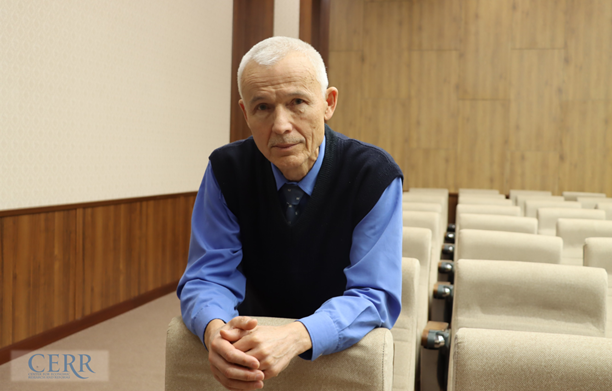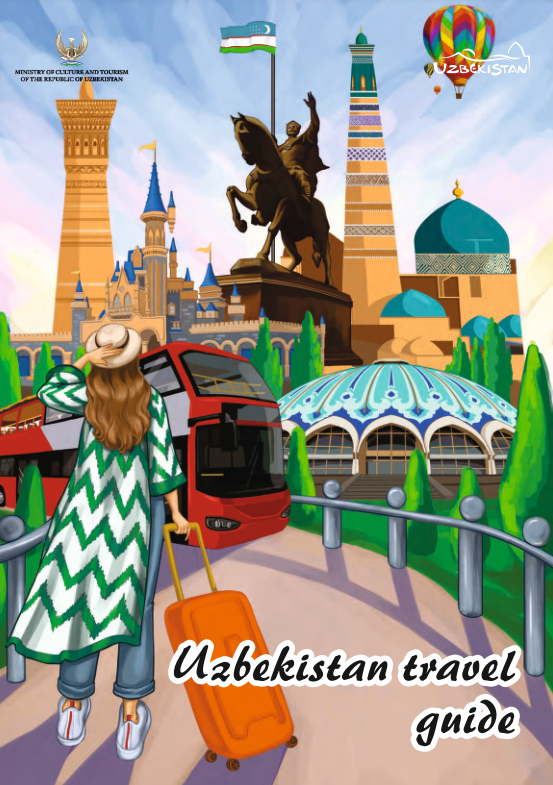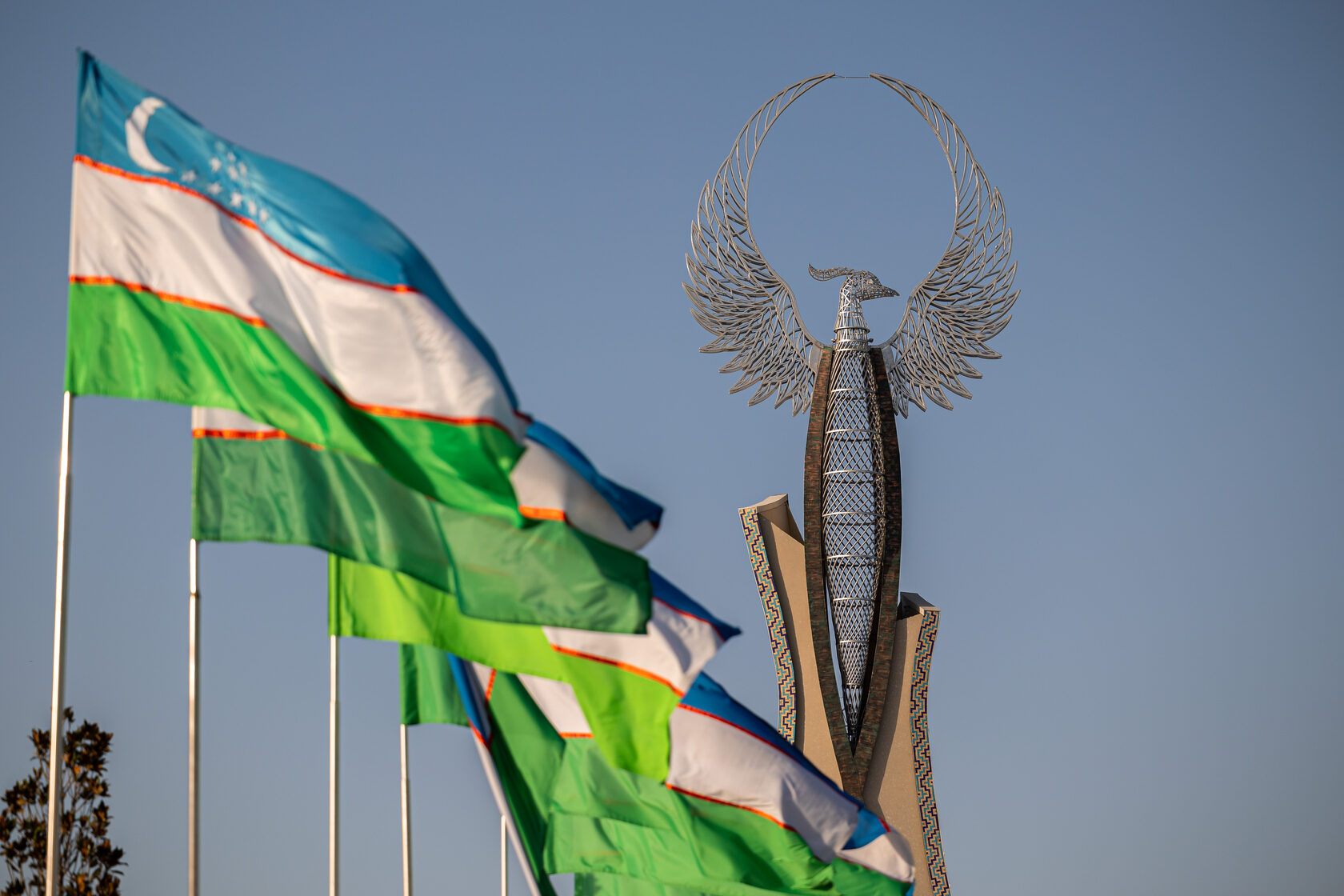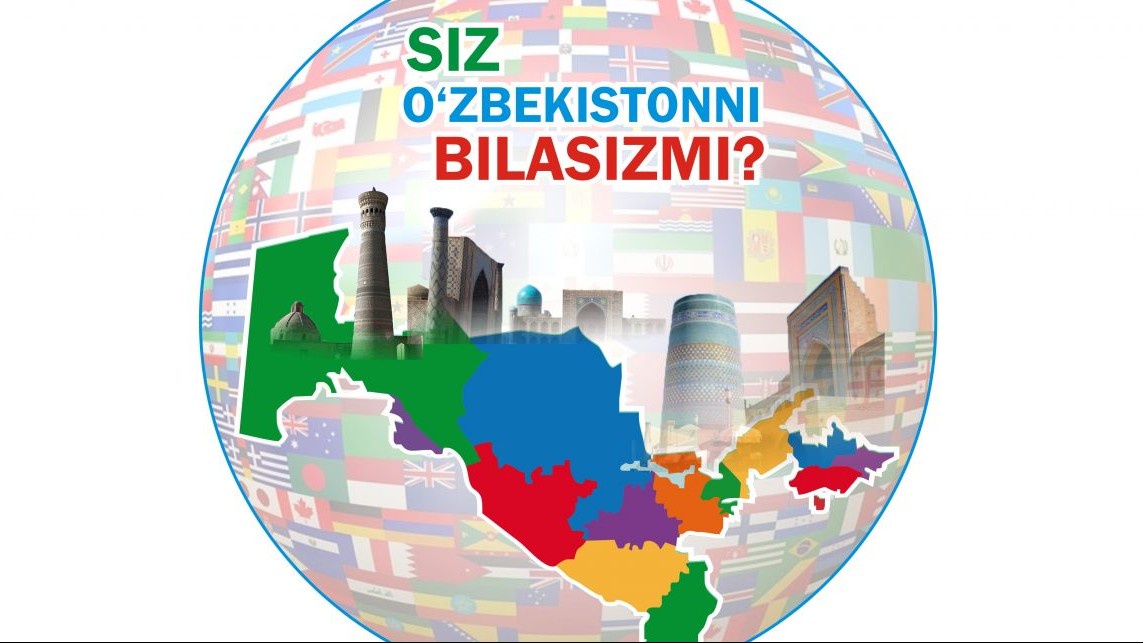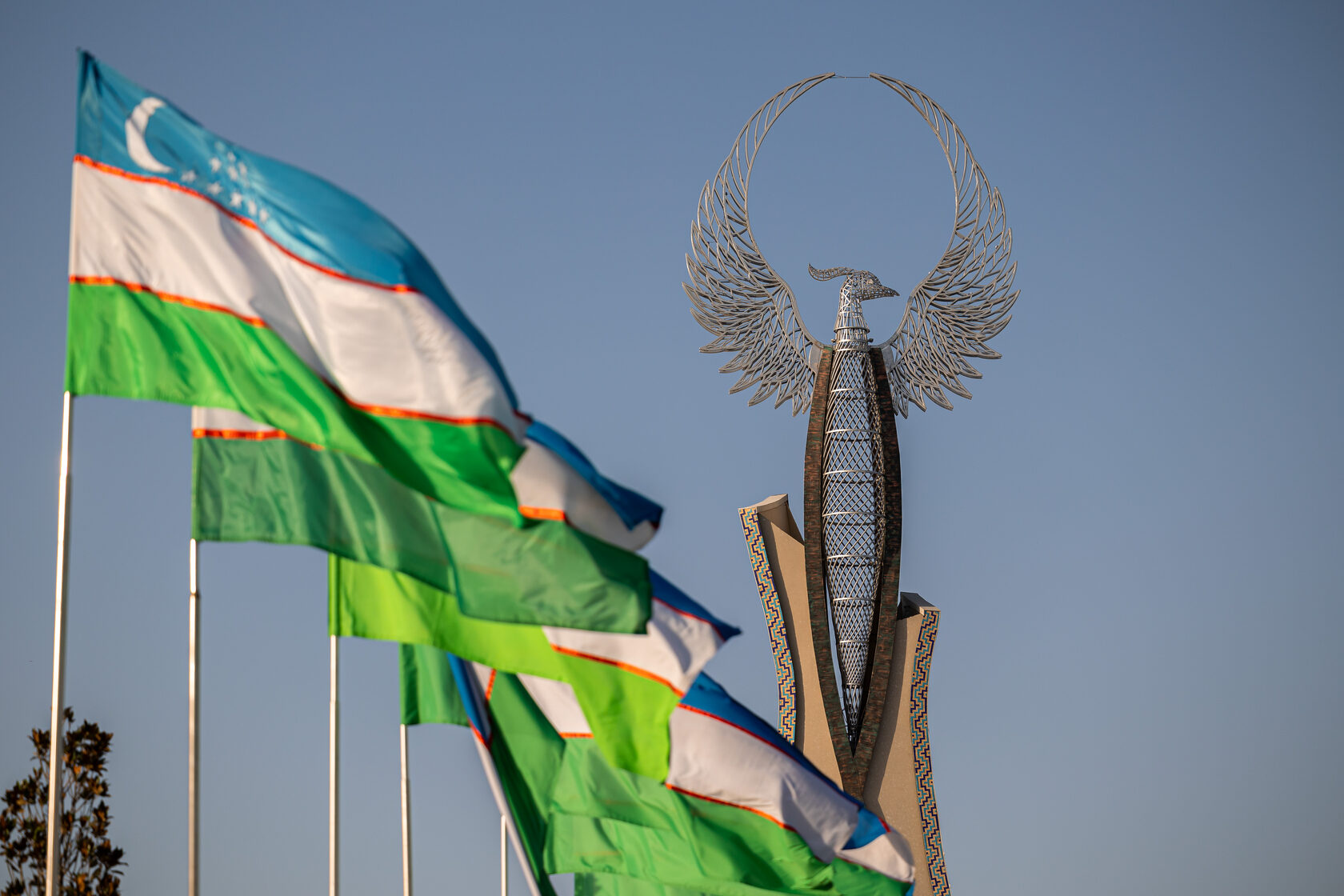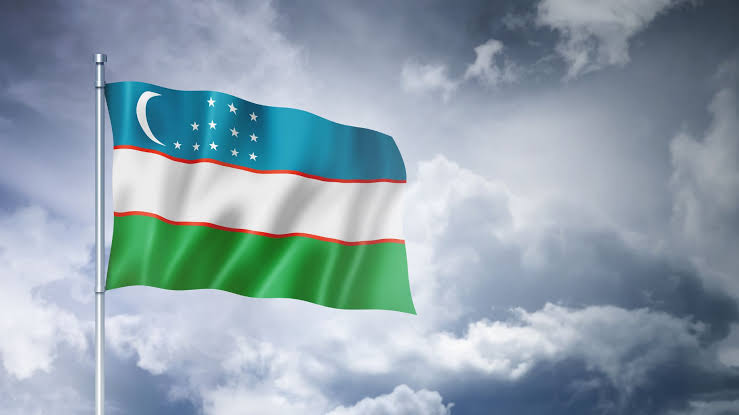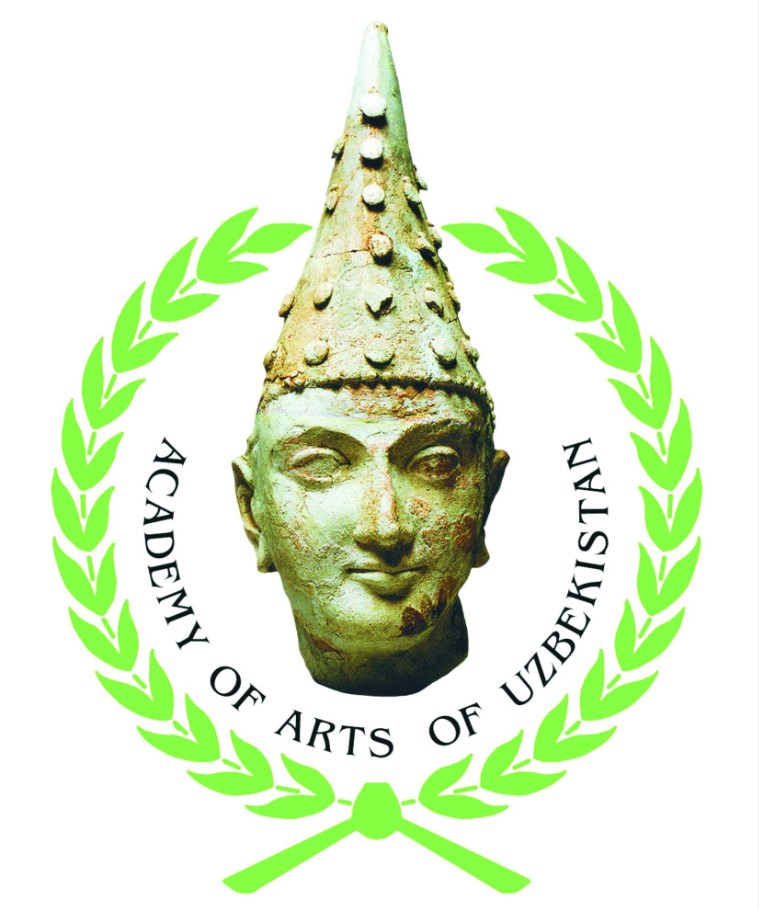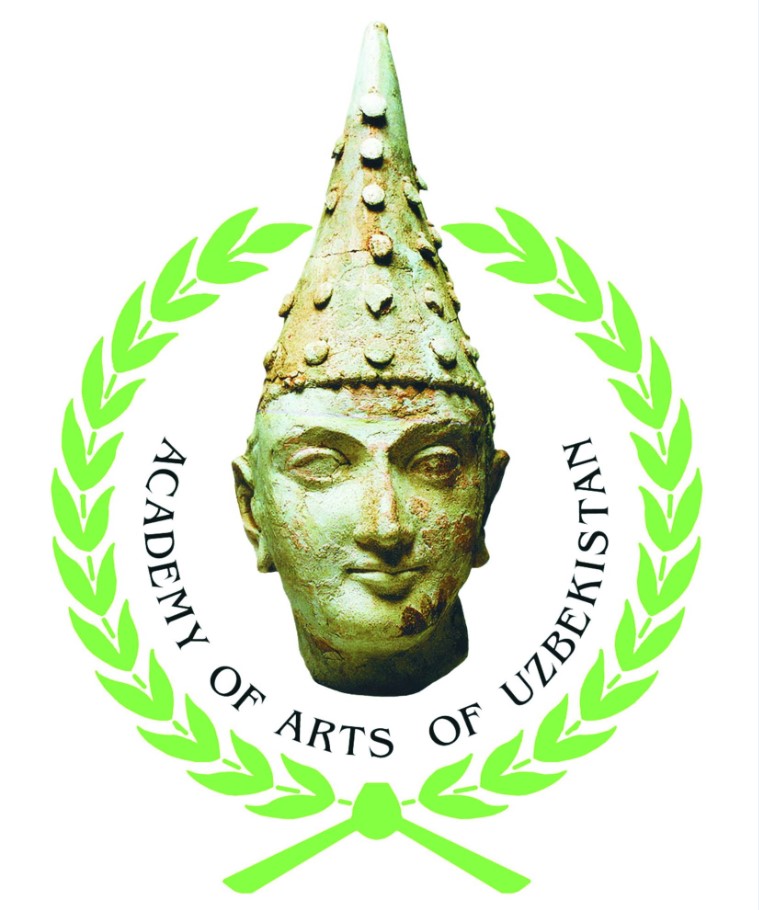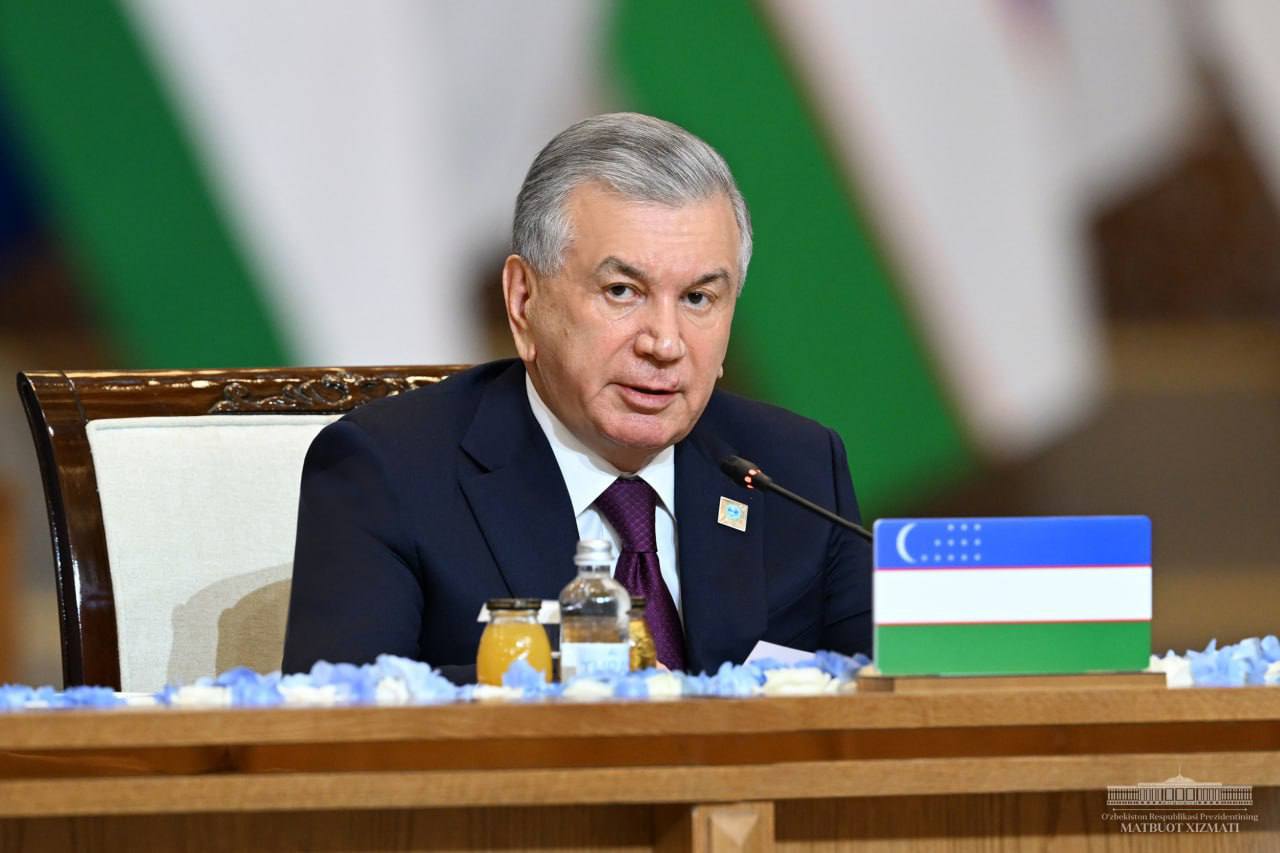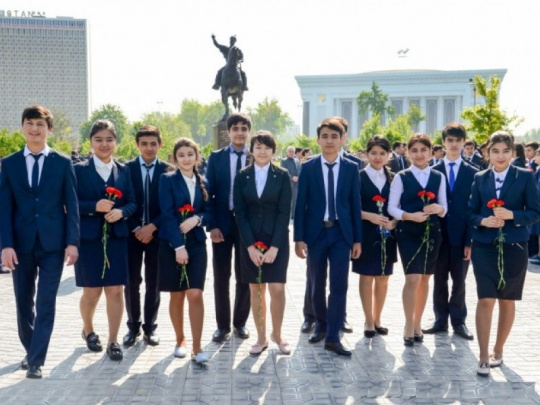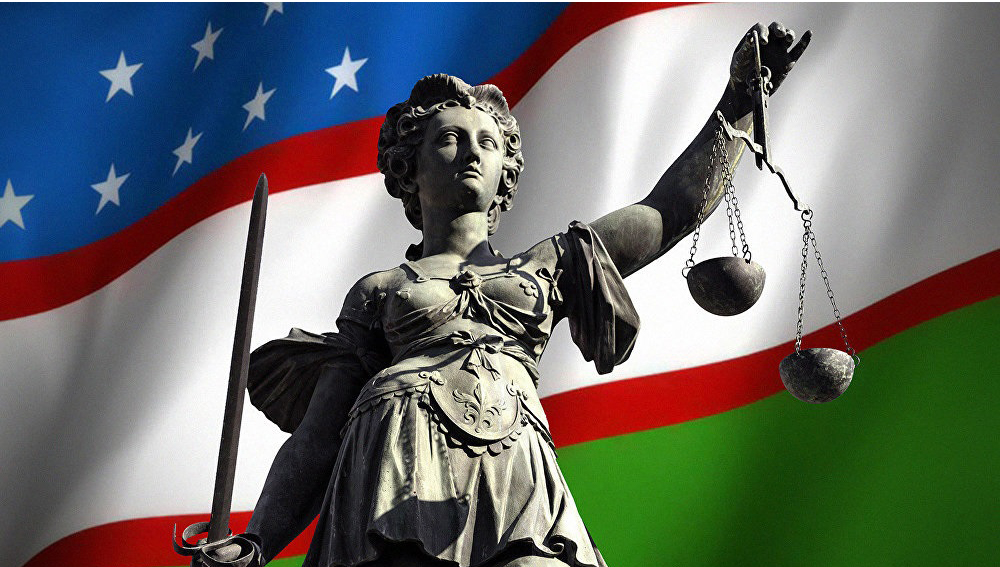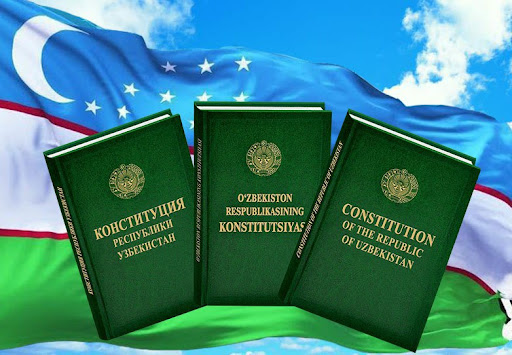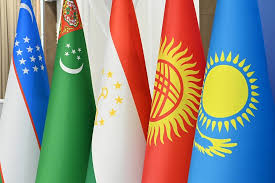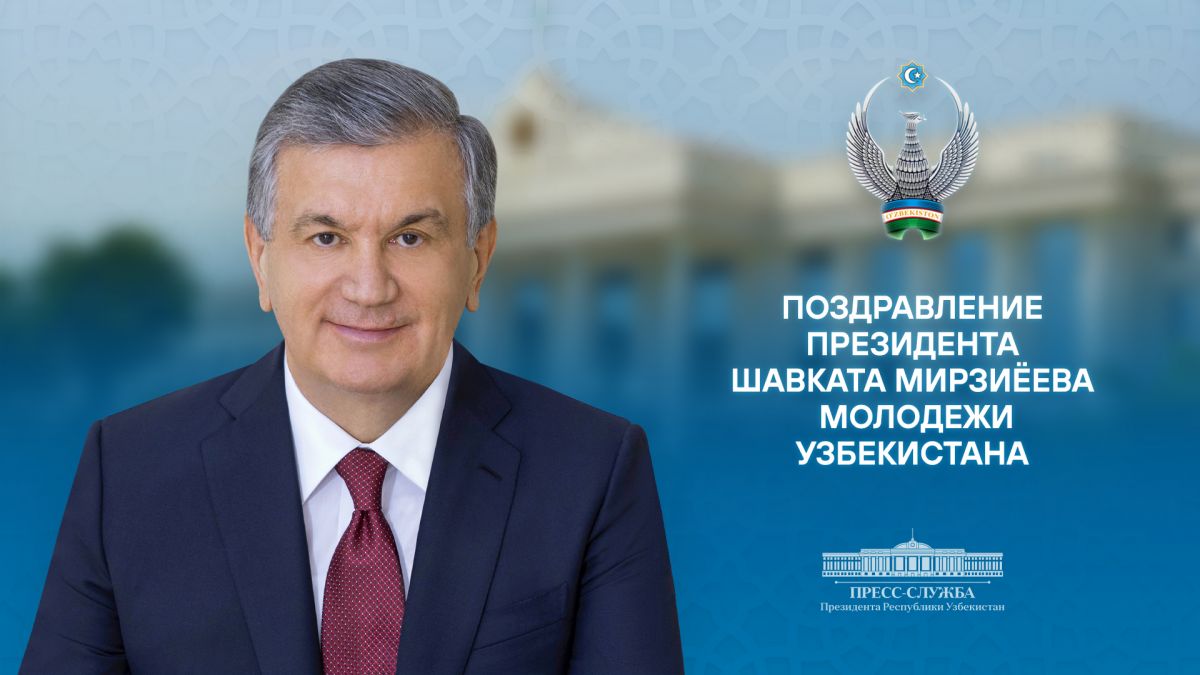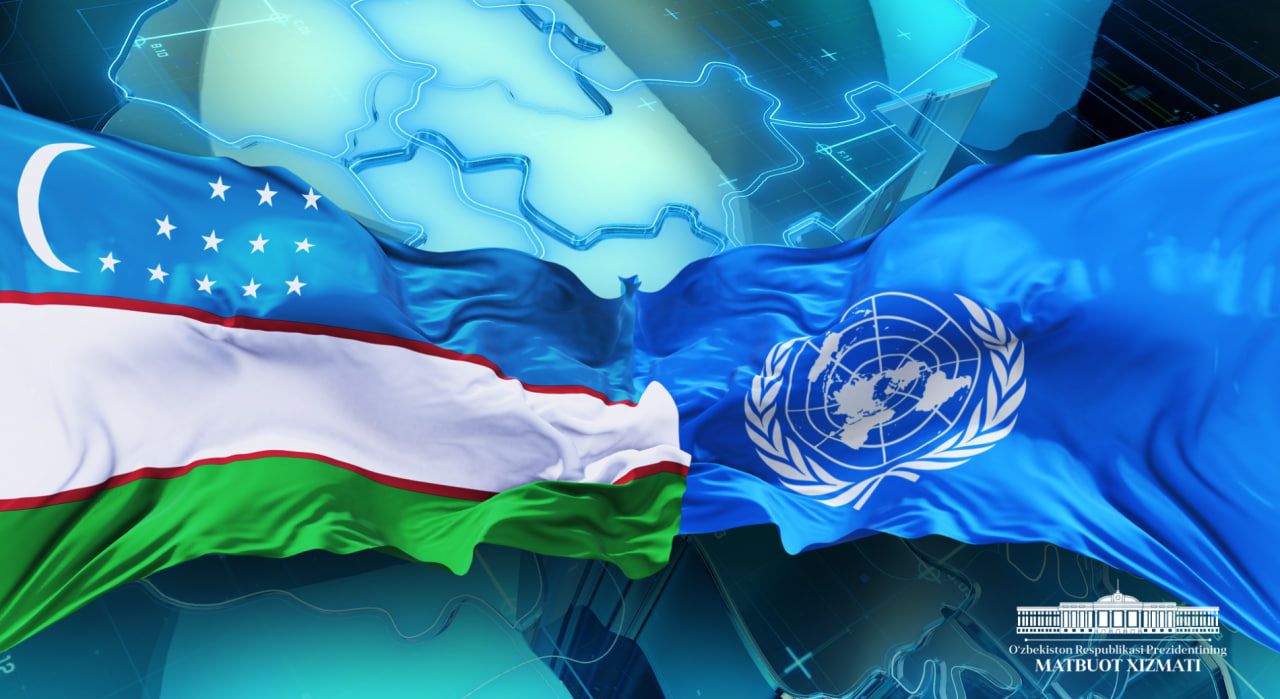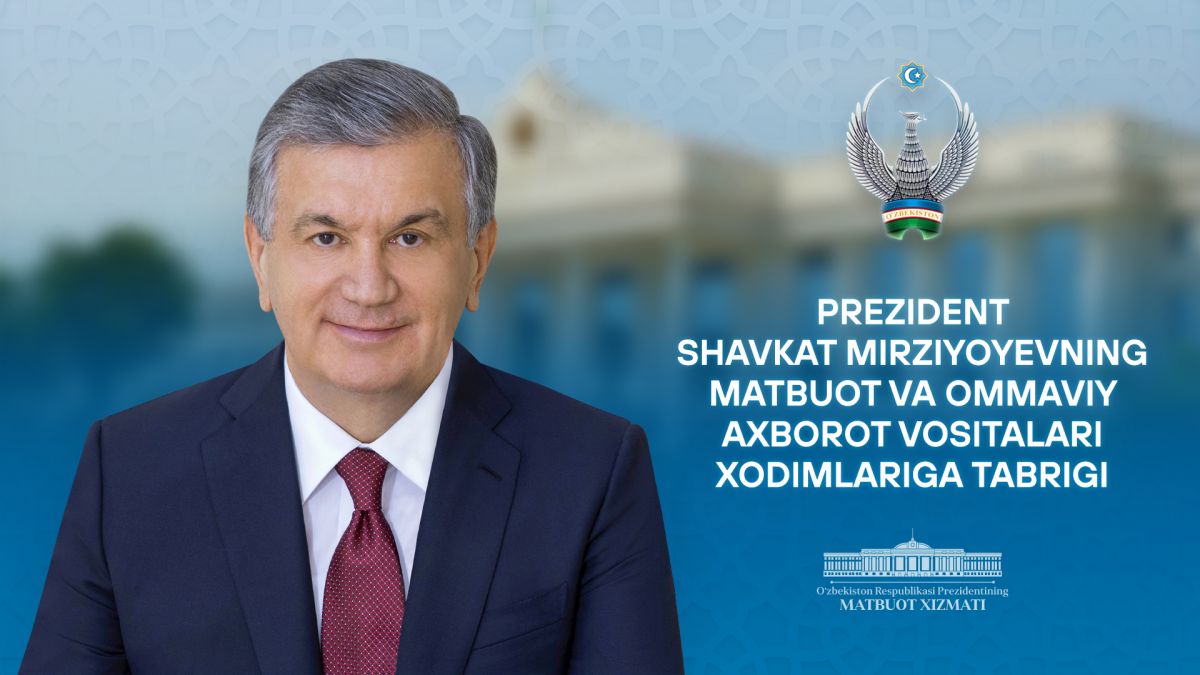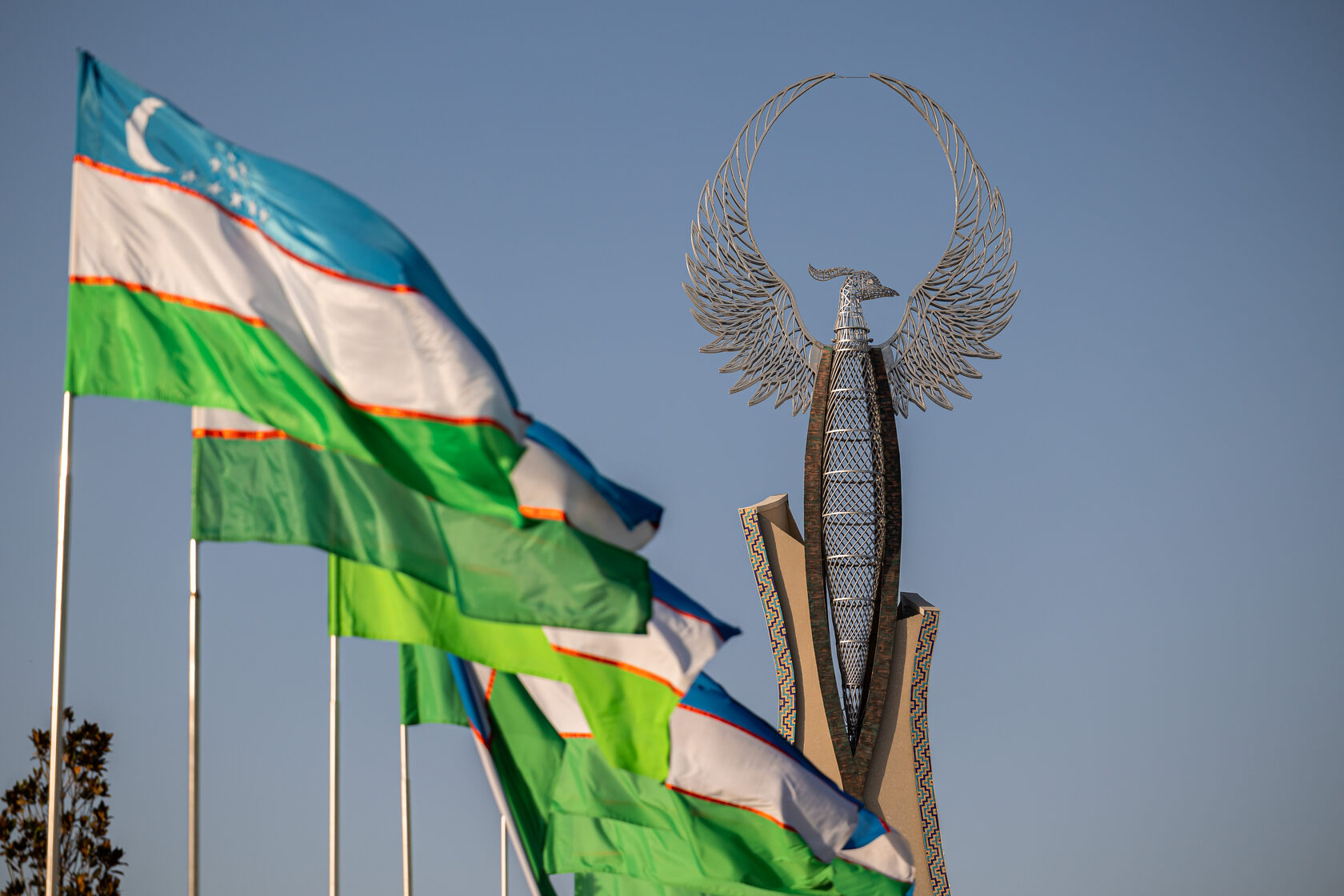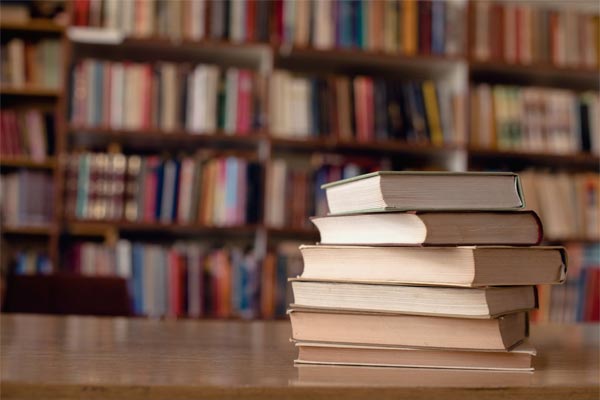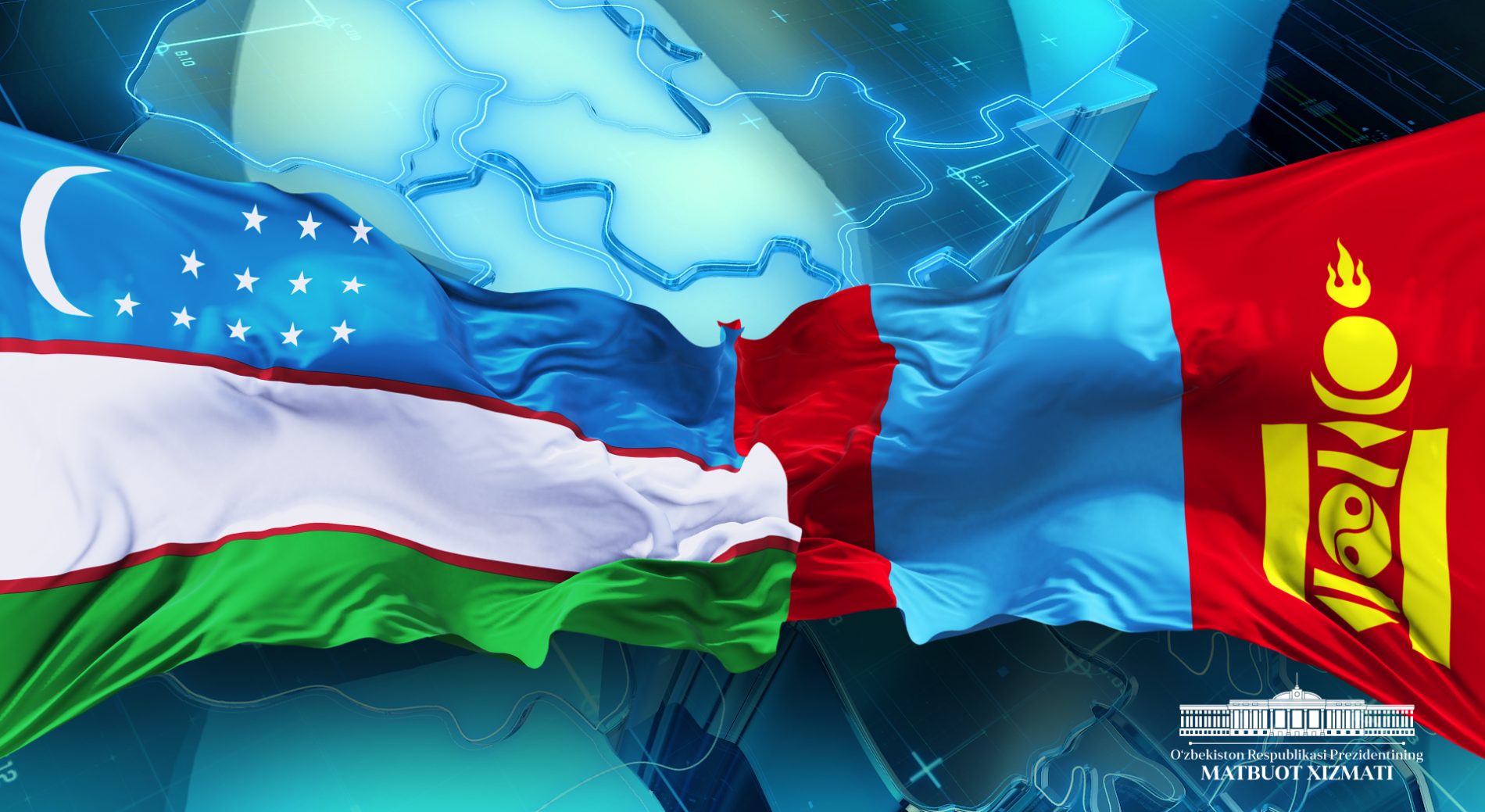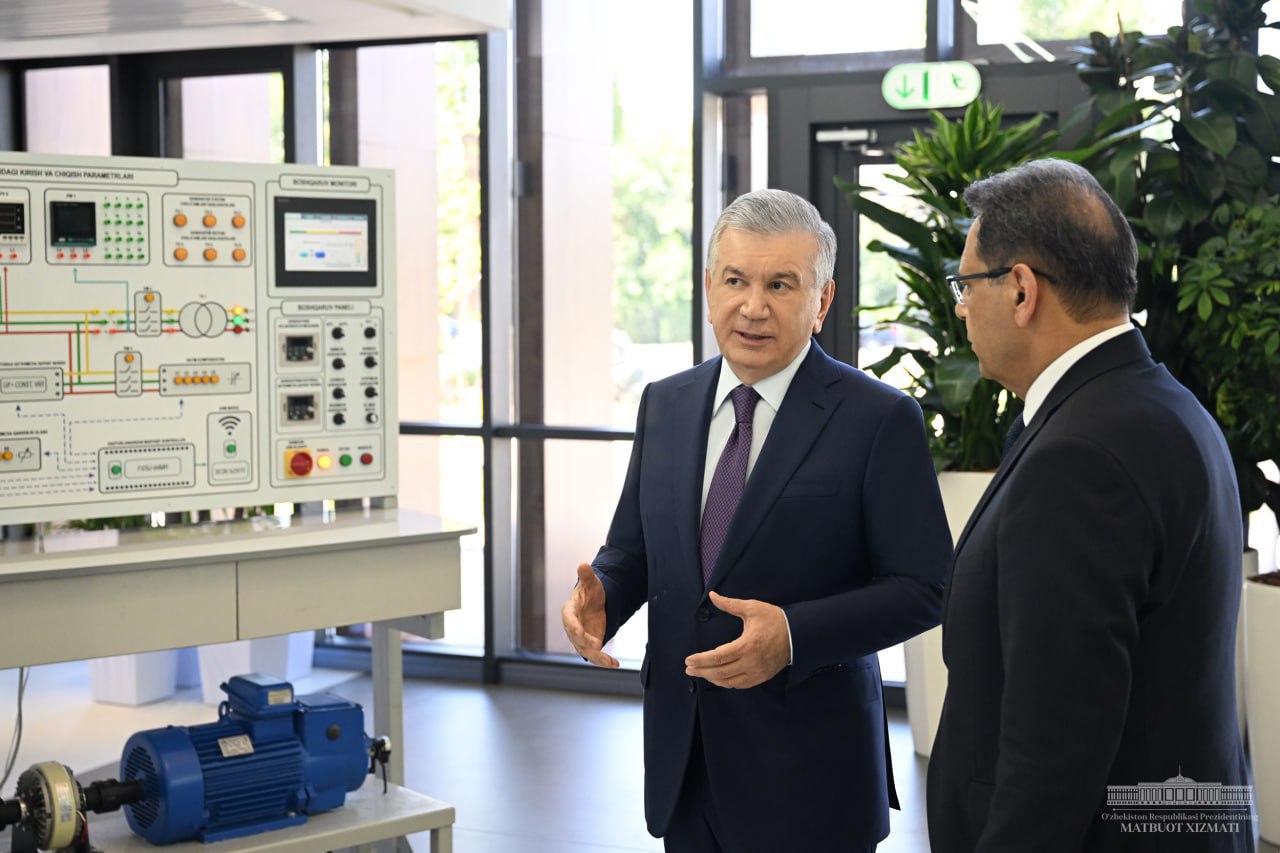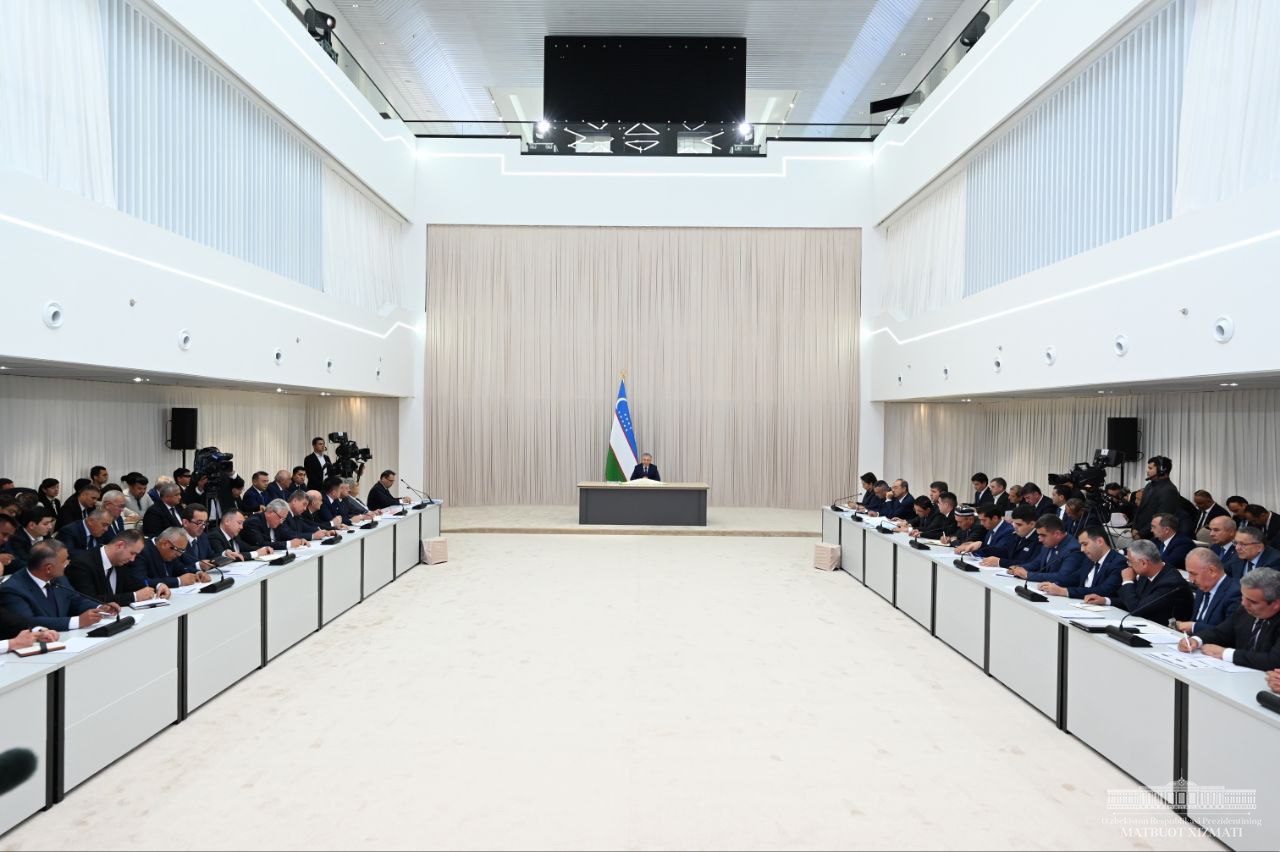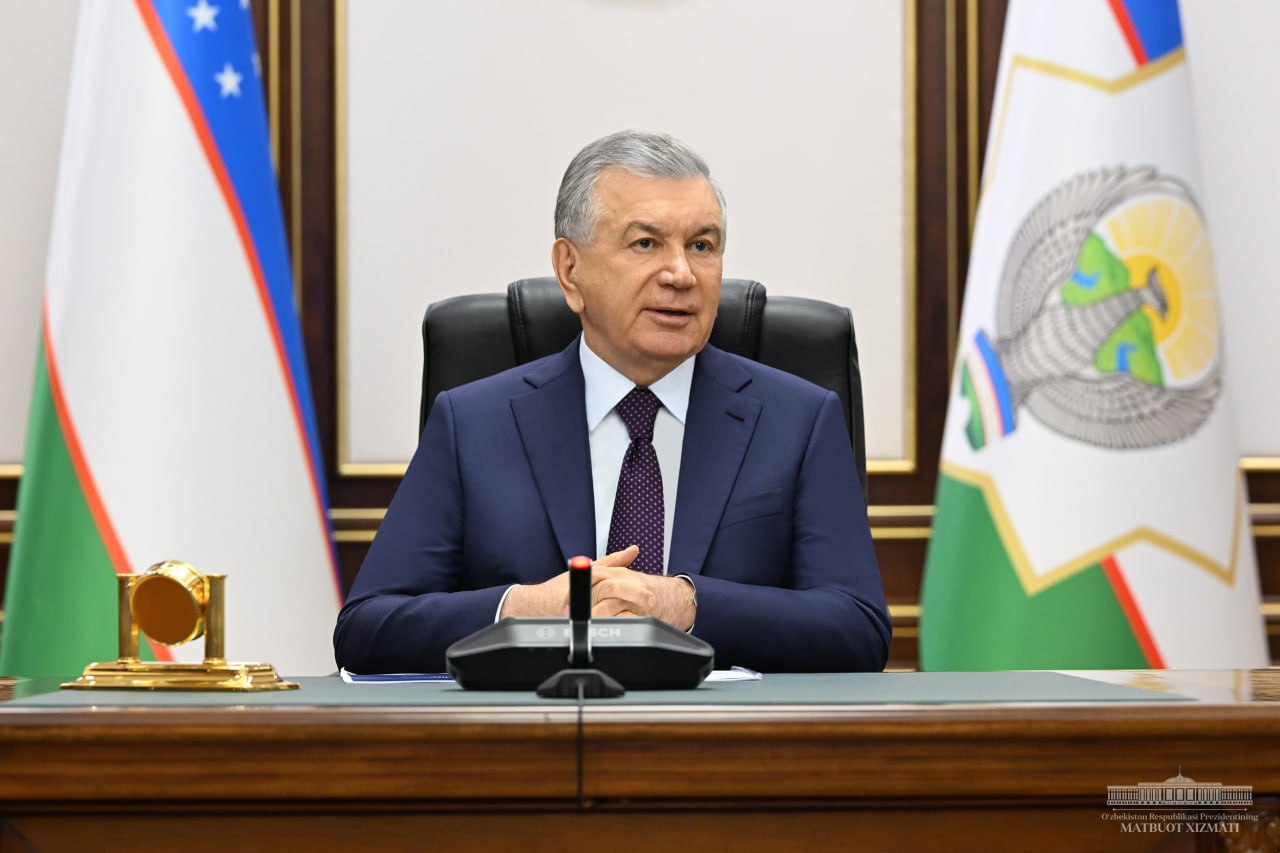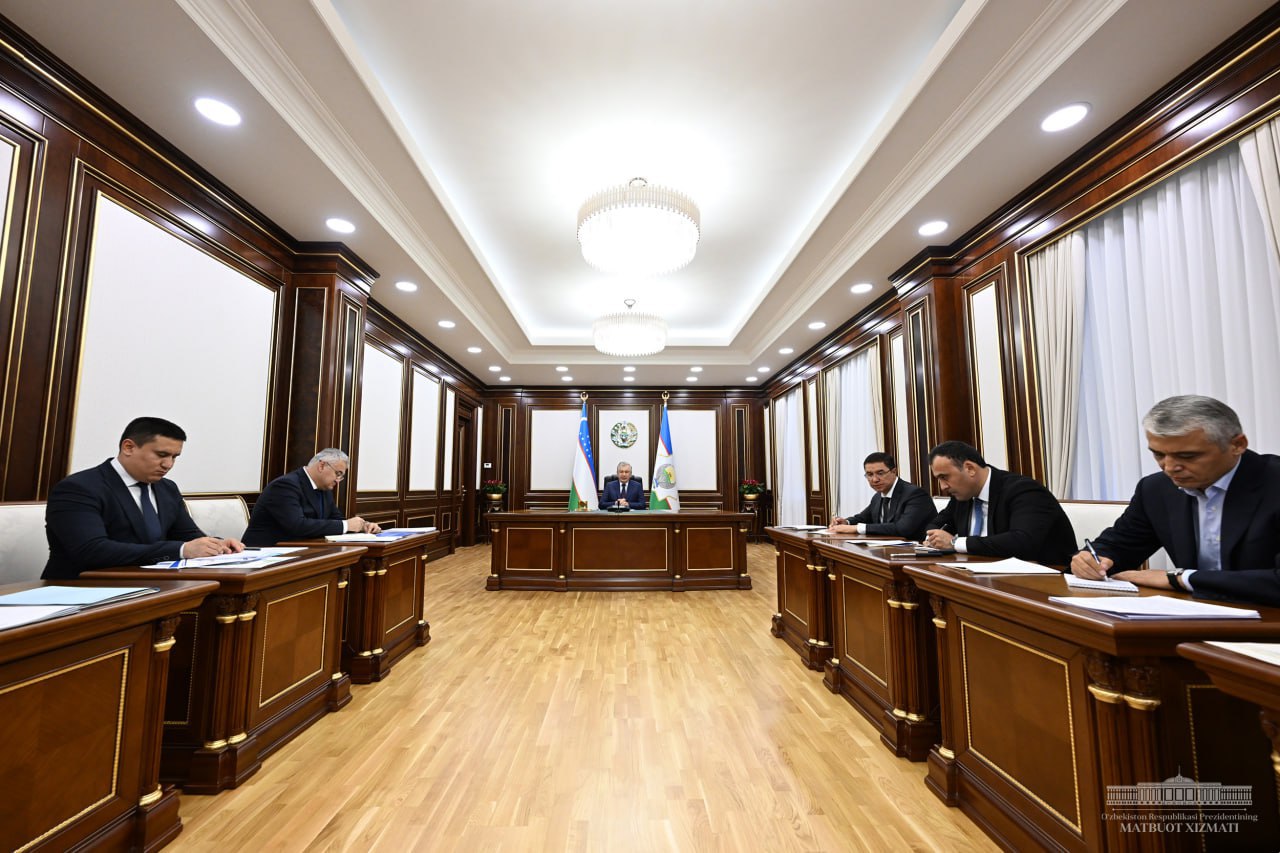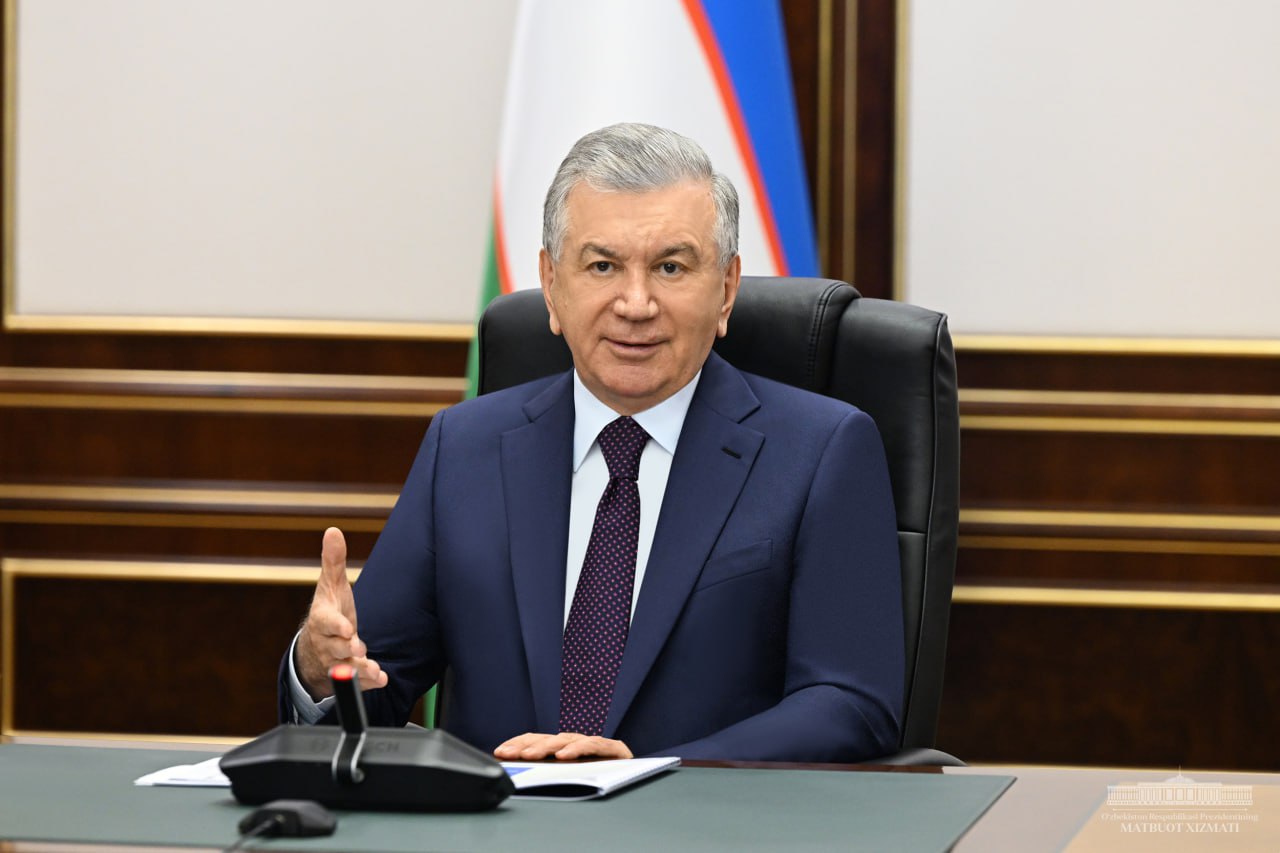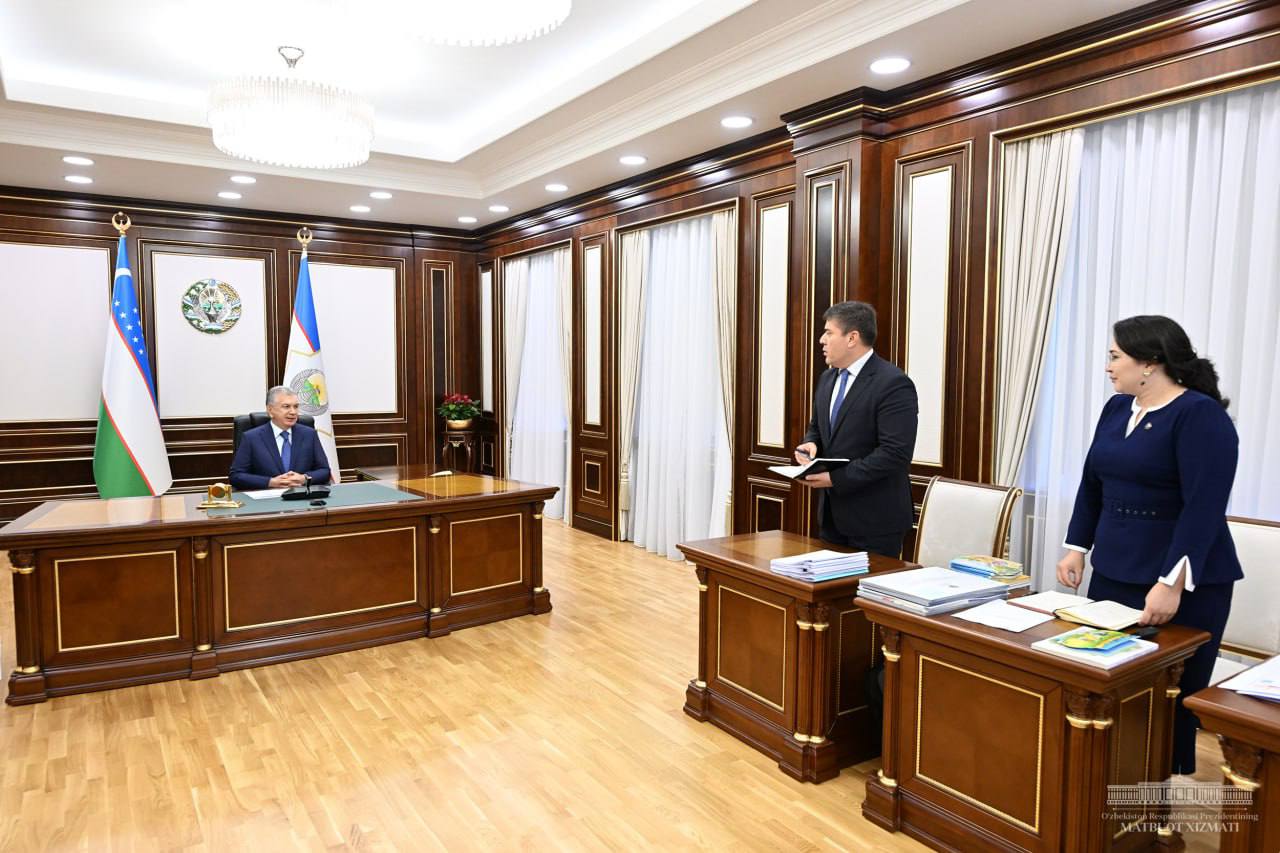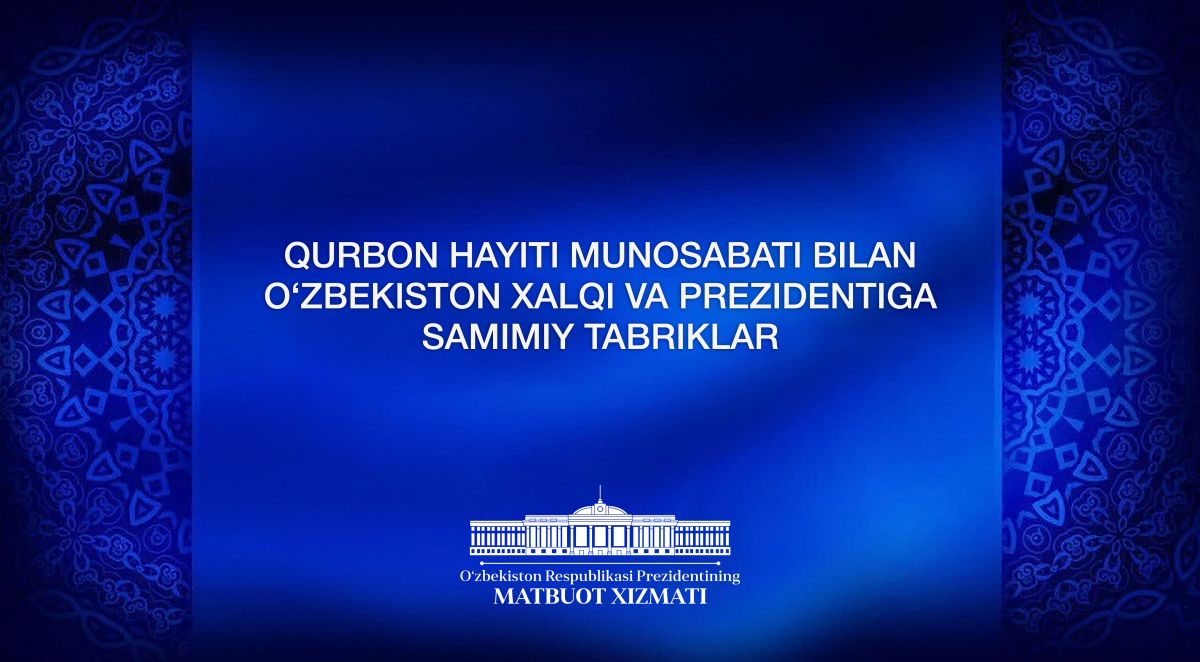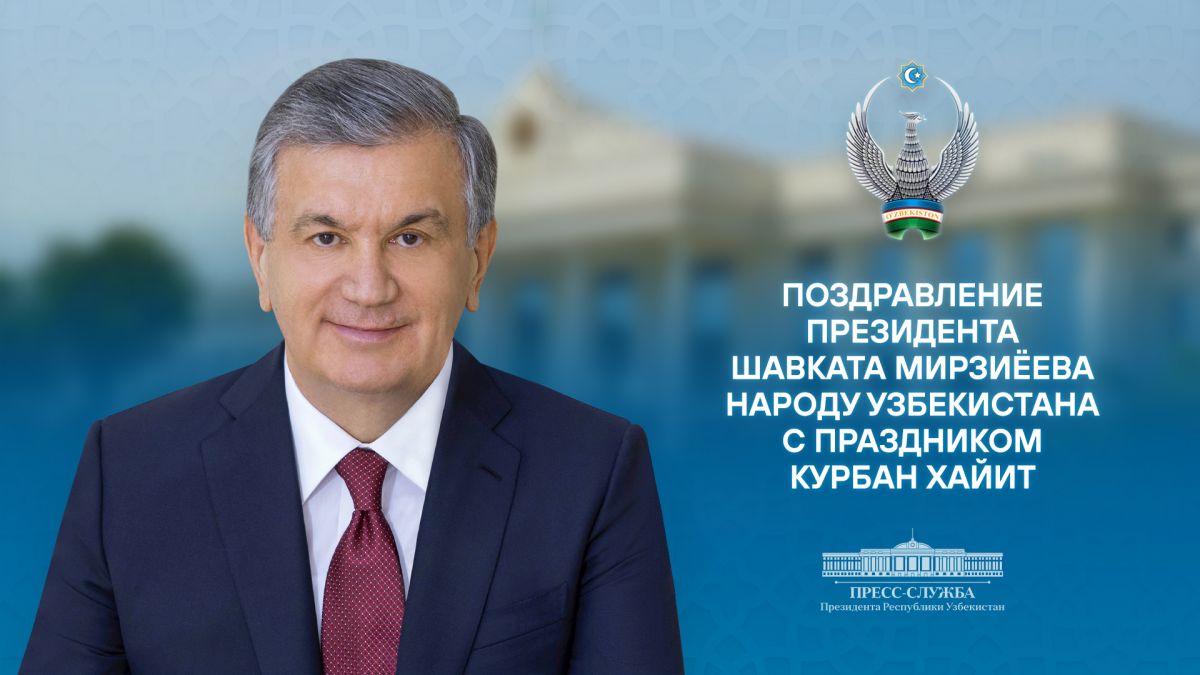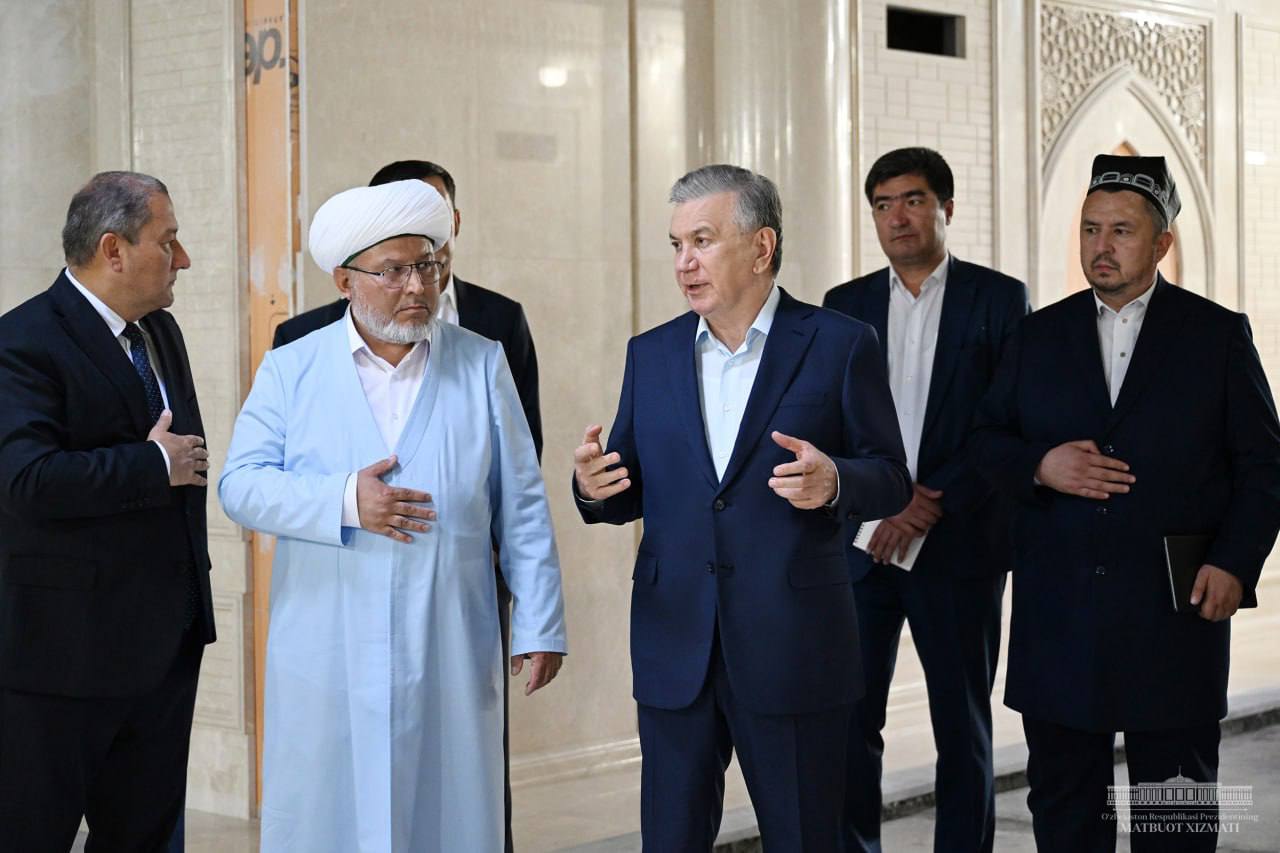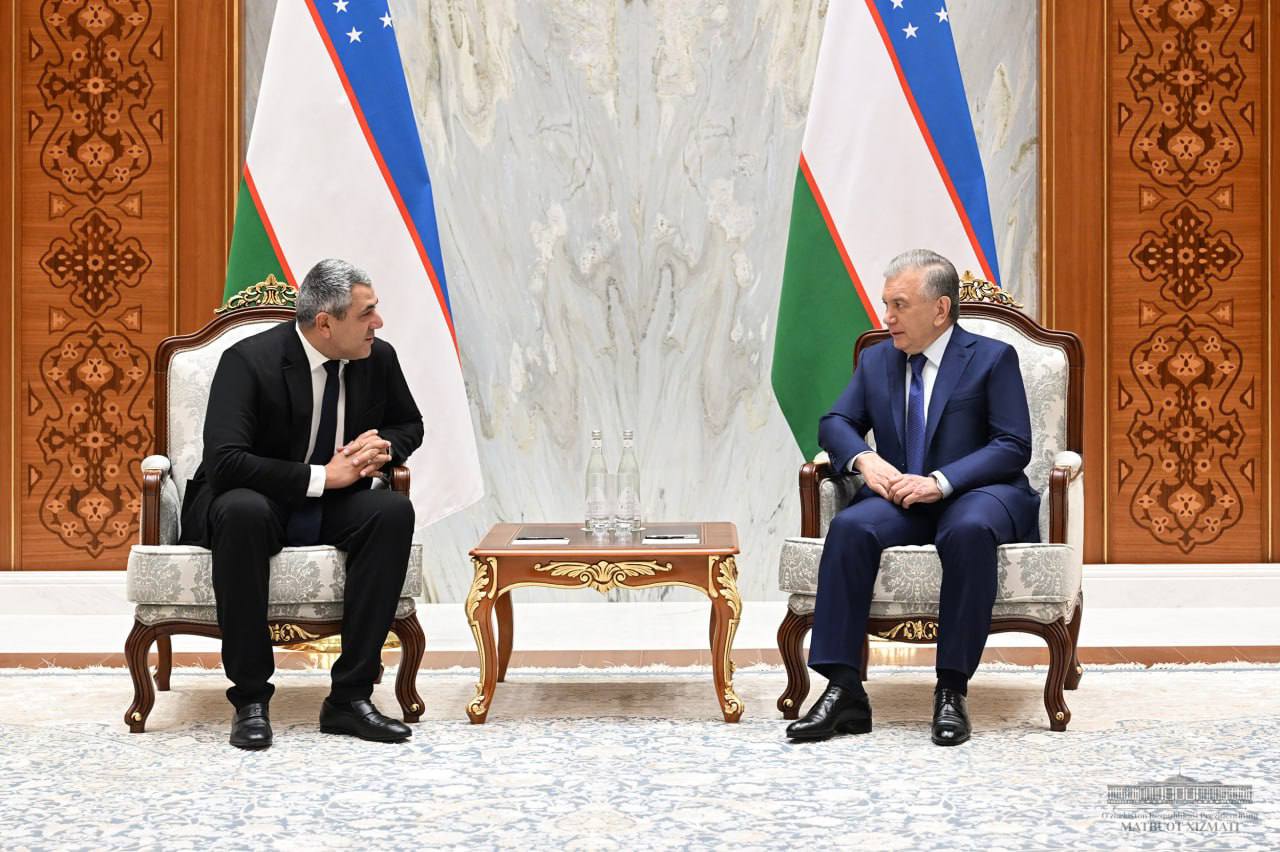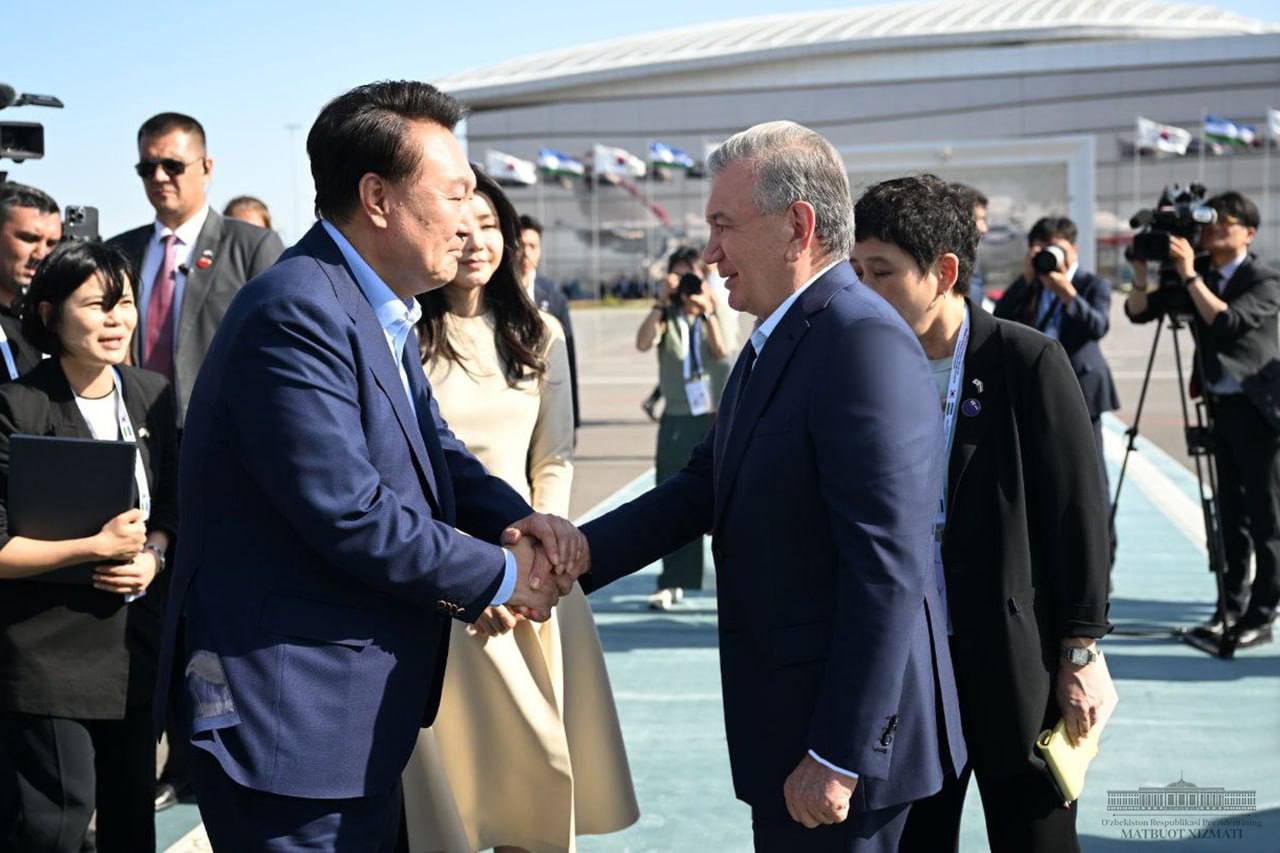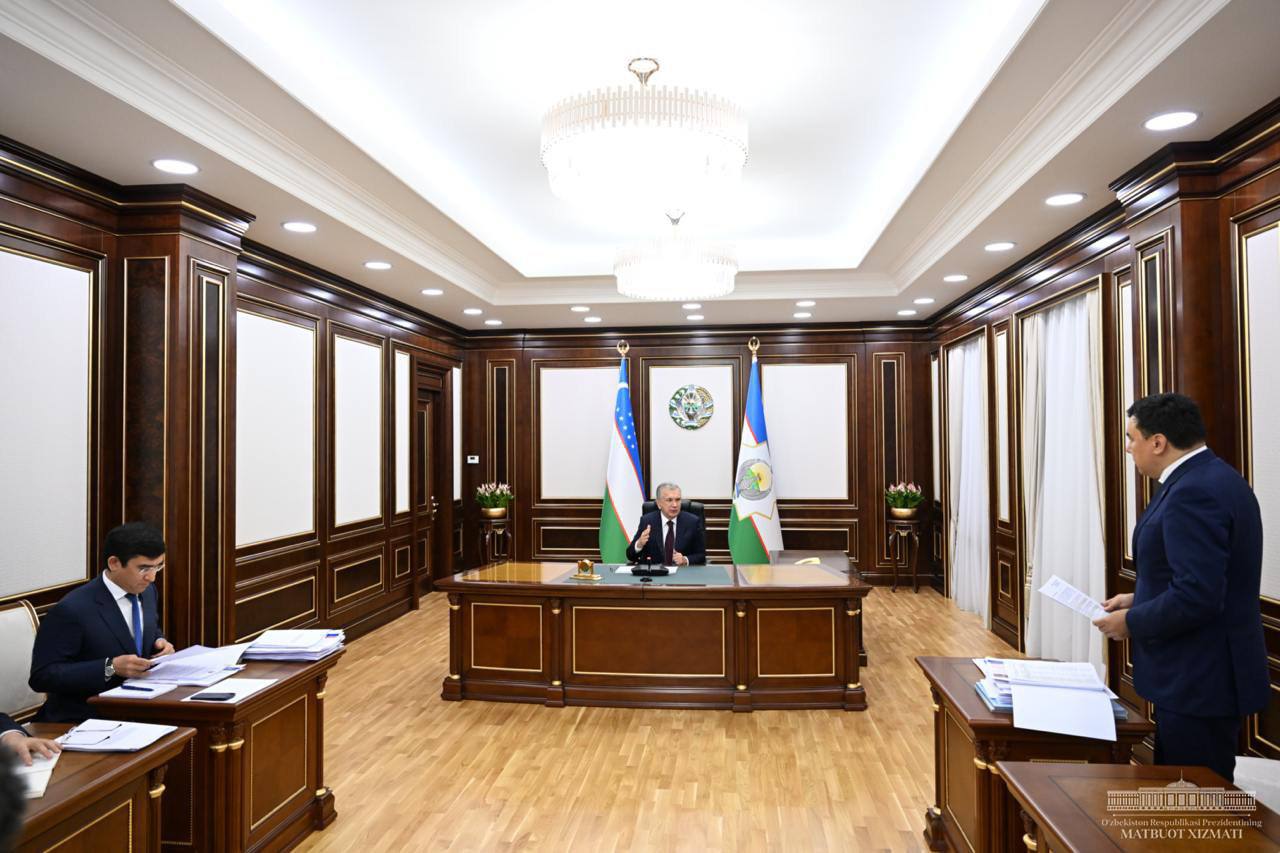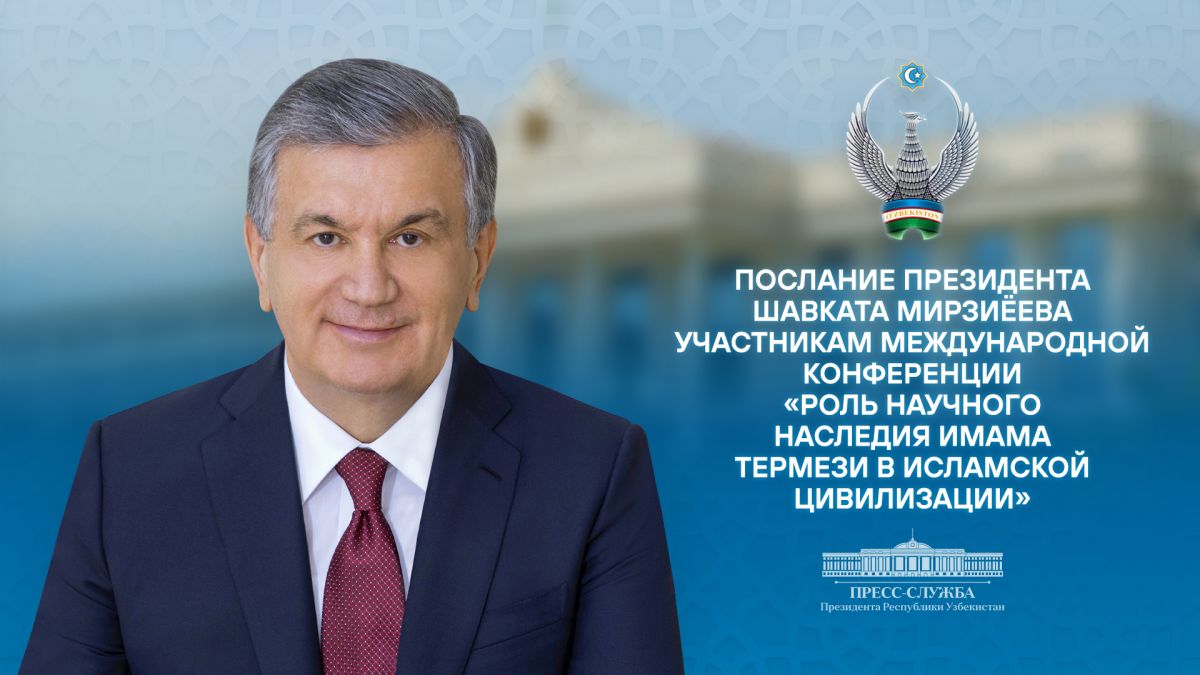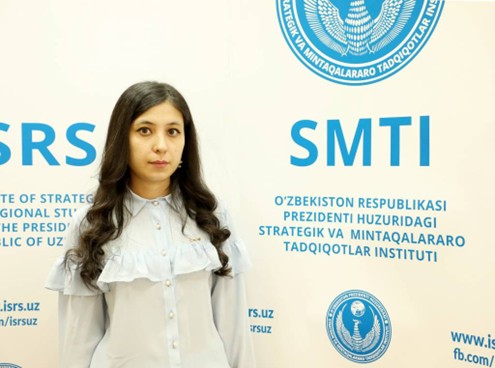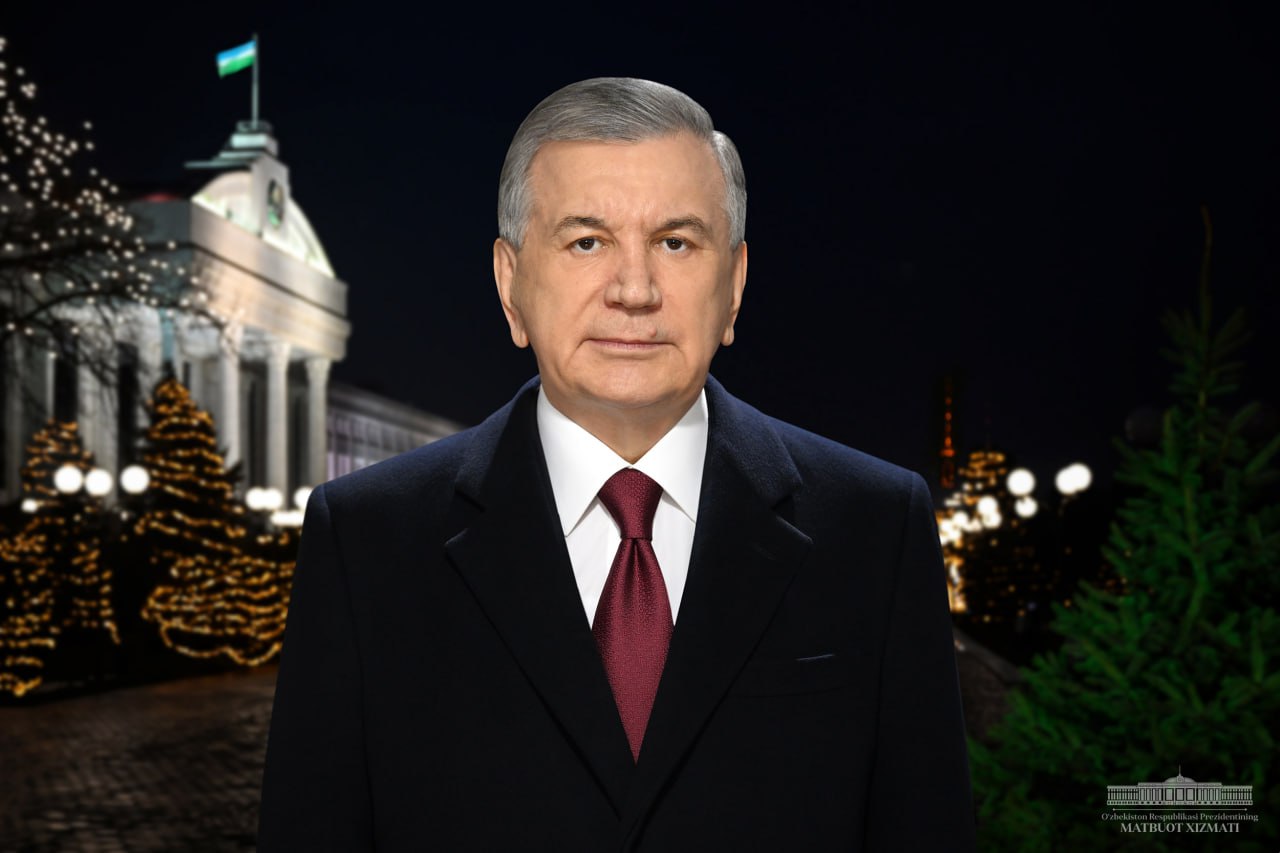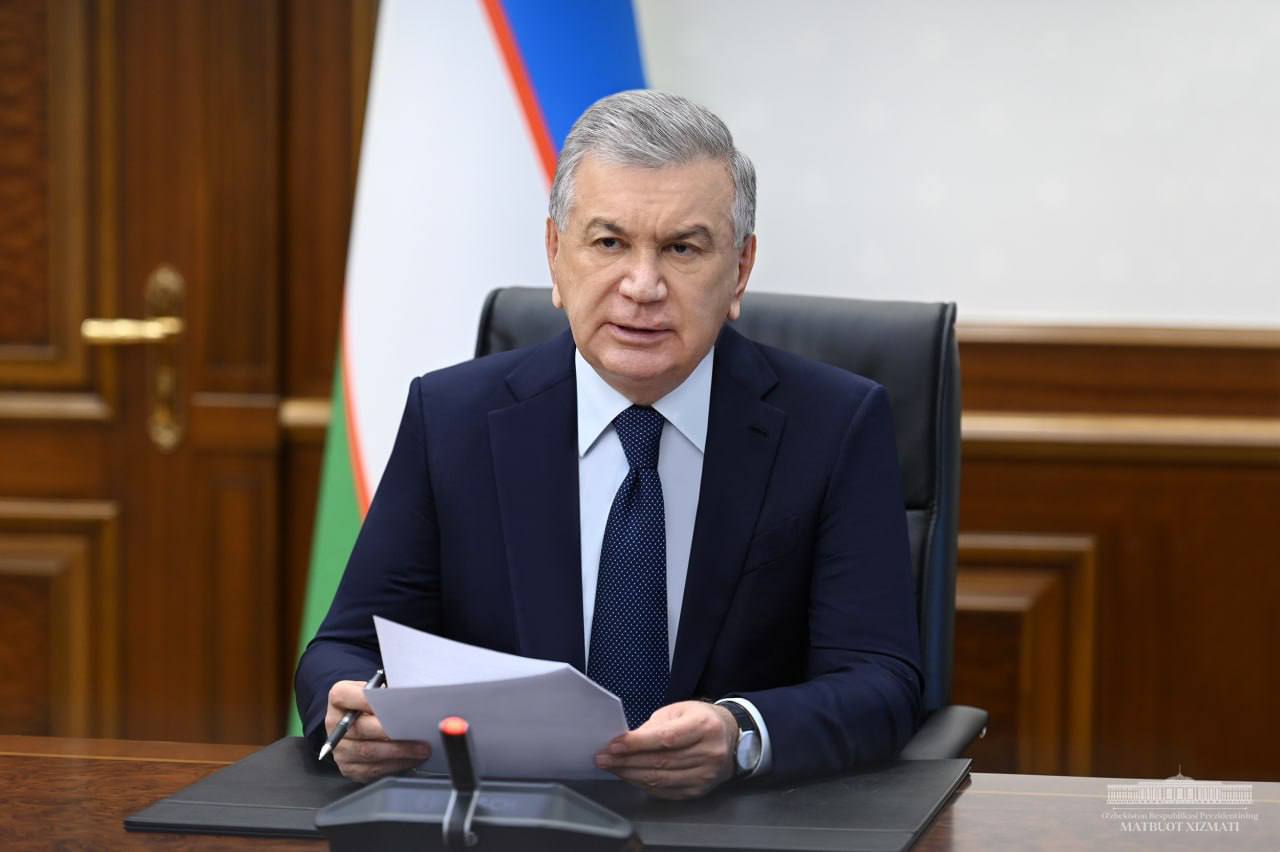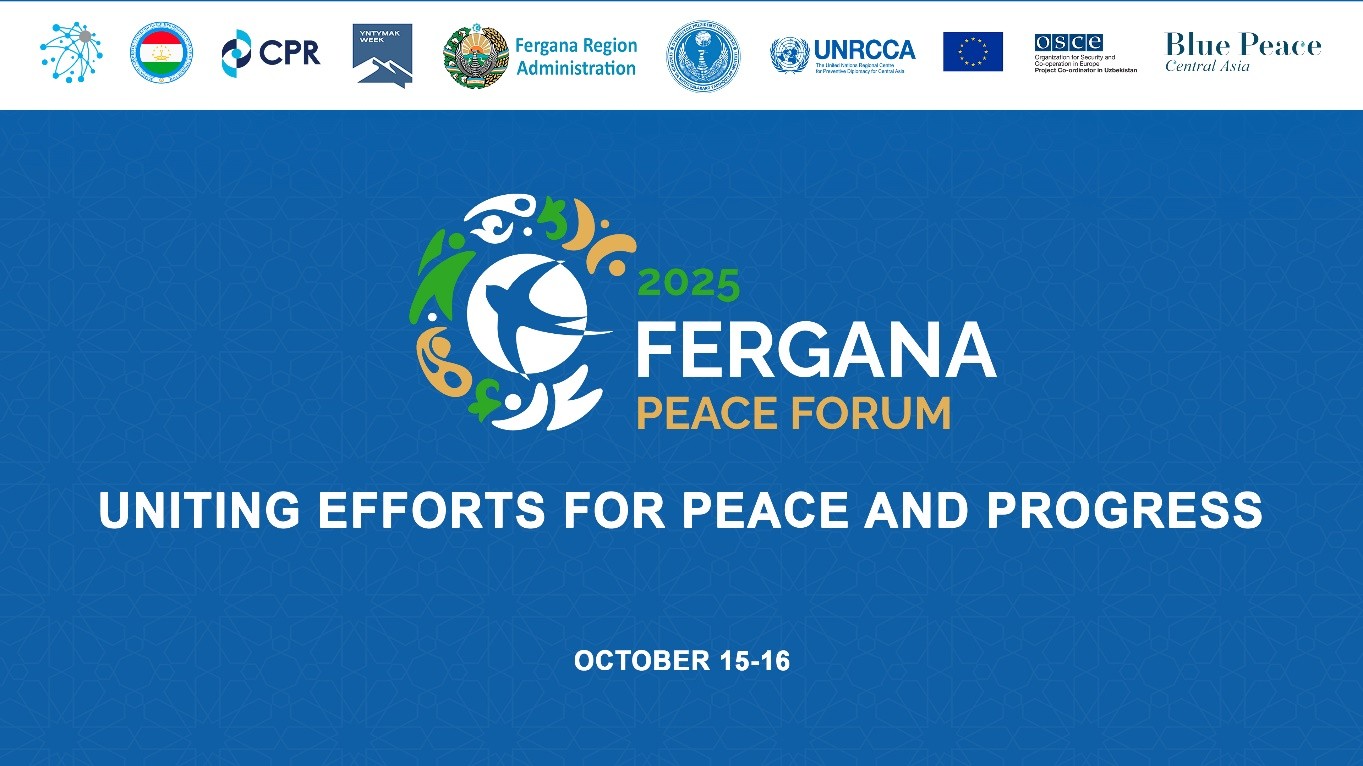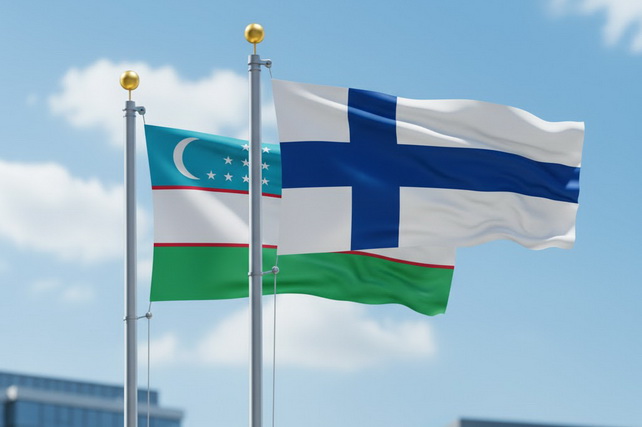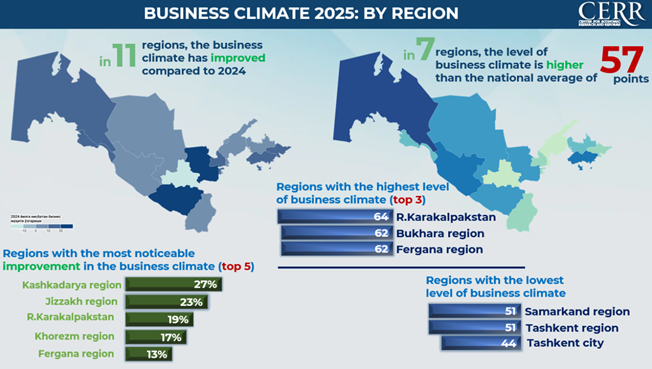Phone
Consular Issues
Phone
Uzbekistan news
We recommend
Gender equality as one of the principles of building a New Uzbekistan
📅 12.07.2024
Uzbekistan — is a country of irreversible, rapid reforms. One of the priorities of the development strategy of the New Uzbekistan is the policy of achieving gender equality in the country.
Under the "Uzbekistan-2030" development strategy, large-scale measures are being implemented to increase women's political, social and economic activity, protect mothers and children, promote gender equality and safeguard women's rights and interests.
Thanks to the political will of the leadership of Uzbekistan, the Gender Strategy of Uzbekistan until 2030 was developed, the laws “On guarantees of equal rights and opportunities for women and men”, “On protection from oppression and violence” were adopted, as well as legislative norms on mandatory gender expertise of all regulations and introduction of gender audit. Thus, a mechanism has been introduced to study the state of the gender approach in all government organizations and to develop measures to ensure equal rights and opportunities for women and men by the Federation of Trade Unions as public control. Liability for domestic violence has been strengthened. Over the past 5 years, more than 40 Presidential decrees and Resolutions have been adopted aimed at ensuring gender equality. Meanwhile, legislation for women is being improved and opportunities are expanding. In 2023, the Electoral Code of Uzbekistan established provisions that the number of women when nominated from political parties to representative bodies of power should be at least 40% of the total number of nominated candidates for deputies and in the proportional election system, nominate at least two women out of each five candidates for parliament. Since 2019, a Gender Commission on increasing the role of women in society, gender equality and family has been created in the Senate. The Committee for Women and Family Affairs was newly created, more than 9 thousand positions were established, up to mahallas, specifically dealing with issues of women and family throughout the country and at all levels, rehabilitation centers began to operate to provide assistance to women victims of violence.
Systemic measures taken at the initiative of the head of state, President of Uzbekistan Shavkat Mirziyoyev, in order to reduce poverty, establish “women’s notebooks”, reduce unemployment among women and support women’s entrepreneurship, preferential loans for women have yielded tangible results throughout the country. A number of restrictions on women’s occupation and choice of professions were lifted. Advisory councils on gender issues were created in all ministries and departments. As a result, the number of women in parliament reached 33%, in business their number doubled and reached 25%, in political parties 44%, in higher education 40%. In 2023 alone, more than 13,3 billion soums of loans were allocated for the implementation of over 279 thousand women’s business projects, and about 300 billion soums of subsidies were provided to almost 57 thousand women. Based on the “Women's Notebooks” system, the problems of 994 thousand women were solved, the state allocated 1 trillion 234 million soums for these purposes.
As a result of studying the situation of women in mahallas, targeted assistance was provided to more than 690 thousand families in need of social protection.
In 2024, it is planned to provide 8 thousand women and girls included in the “Youth Notebook” with subsidies to start their own business and purchase equipment, and 10 thousand with preferential loans. It is planned to launch a “Business Marathon” project for 50 thousand young women with the participation of qualified specialists to provide practical assistance in setting up a business.
In the field of education, great attention is also paid to gender equality. The country has taken a number of effective measures to protect women and girls; a gender approach is being introduced into curricula and teaching methods, as well as in STEM education, especially in rural areas. Currently, more than half of the 1 million 300 thousand students, i.e. 653 thousand, are girls. In the master's program, the share of girls is 60% of master's students. The state encourages and fully pays for the contracts of women and girls studying for a master's degree from the state budget. In 2023-24 1,914 girls from needy families were accepted to study at universities using additional government grants. 181,500 girls received preferential educational loans. At the expense of local budgets, the contract amount of more than 2 thousand students from families in need of social protection, orphans or students deprived of parental care was covered for 14 billion soums.
Improving the opportunities and conditions for the education of women and girls in the country gave impetus to an increase in interest in mastering modern knowledge and professions, for example, within the framework of the educational project “One Million Programmers”, 47% were girls. Creating favorable conditions for women in education gives real results in unlocking their potential. Over the past seven years, more than 5 thousand women have been awarded the academic titles of Doctors of Philosophy and Doctors of Science. More than 14 thousand women are conducting their research at universities in Uzbekistan.
Achieving gender equality — is a global task on the agenda of universal international organizations such as the UN and other regional structures. Uzbekistan is actively developing international cooperation in this area. As a party to the 1979 Convention on the Elimination of All Forms of Discrimination against Women and the 1995 Beijing Declaration of the Platform for Action, the country regularly submits national reports to the Committee and develops national action plans.
In recent years, great importance has been attached to cooperation in the field of gender equality with the countries of Central Asia. The Forums of Women Leaders of Central Asia and the Asian Women's Forum in 2024 were successfully held, where representatives of more than 40 countries and international organizations participated.
Lola Saidova, Doctor of Law, Professor,
Chief Researcher of the ISRS under the
President of the Republic of Uzbekistan
Uzbekistan: the fight against corruption is a continuous process
📅 24.06.2024
Uzbekistan has been undergoing a transformational journey since it changed political leadership in 2016. The nation is implementing extensive reforms aimed at spanning anti-corruption measures, business climate enhancements, judicial reforms, improving labour conditions, administrative efficiency, protection of human rights, and good governance.
Central to these reforms is a comprehensive anti-corruption agenda bolstered by strong laws and strategic plans. Reforms have targeted diverse sectors, with a focus on improving public administration, ensuring quality public services and information access, and overhauling the judiciary. Over the recent years Uzbekistan has made significant efforts to help its people feel confident that leaders in the national public and private sectors operate in a transparent and ethical way.
As we know, international standards in this area focus on the following elements, which are intended to increase effectiveness of prevention and combating corruption:
- Imposing additional restrictions for civil servants;
- Increasing transparency in the private sector, e.g. identifying beneficial owners;
- Strengthening the role of financial intelligence units in combating corruption;
- Strengthening corporate and individual liability for corruption offences;
- Supporting collective action initiatives.
In line with the abovementioned standards, since the adoption of the law on anti-corruption in 2017, Uzbekistan has doubled its efforts to prevent corruption in the public sector and has widened international cooperation to achieve this end. Since coming to power in 2016, President Shavkat Mirziyoyev has taken steps to liberalise the Uzbek economy and denounce corruption.
President Shavkat Mirziyoyev has begun liberalising the economy, which has started to attract significant investments from China and the EU and contributed to Uzbekistan’s strong economic growth. In particular, Presidential Decree of 2017 took steps to tackle the shadow economy by permitting the free purchase and sale of currency and the use of international mechanisms to set currency conversion rates. This decree eradicated the decades old “black market” where the difference between actual and official conversion rates was around 50%.
In 2020, President Shavkat Mirziyoyev established a new Anti-Corruption Agency via President Decree No.6013 and launched a mandatory online public procurement platform. The Anti-Corruption Agency is tasked with studying researching corruption, engaging with civil society, and enhancing transparency.
The number of arrests and prosecutions of public officials for corruption has increased. According to Prosecutor General’s Office, for example in 2022, there were a total of 3,116 convictions of public officials, of which 110 officials were from the national agencies, 264 from provincial agencies and 2,742 from city and district state bodies. The majority of these cases related to embezzlement (2,103), abuse of position (265), fraud (243) and bribery (169).
The fight against corruption has become a priority area of state policy in Uzbekistan. This can be seen in the conceptual regulatory acts adopted in recent years in this area, on the example of administrative reforms aimed at preventing corruption. The country has established an effective mechanism of countering corruption, including efficient normative-legal base and institutional foundations. More than 70 regulatory acts aimed at combating corruption in all sectors of state and public construction have served as a solid basis for the implementation of these reforms.
The Law on Combating Corruption, adopted in 2017 soon after Mirziyoyev came to power, is the main legal basis for countering corruption in Uzbekistan. The law requires state employees to inform their supervisors about corruption offences they may be directly or indirectly involved in and is meant to ensure protection for whistleblowers. Further, the law grants media outlets the right to request information on corruption offences from state agencies. It also envisages the mandatory examination of regulations being drafted by ministries and other state agencies to ensure they do not create new opportunities for corruption.
Information on state procurement is posted on the website www.d.xarid.uz. The open data portal (data.gov.uz), the registered database of legal entities and commercial entities (my.gov.uz) and other platforms play an important role today in ensuring the principles of openness and transparency and public control, which are the most effective tools for combating and preventing corruption. Licensing and permitting procedures have also been radically improved to completely improve the business and investment climate, remove unnecessary bureaucratic barriers and outdated regulations.
According to the National Database of Legislation of the Republic of Uzbekistan, other important legislative acts in the area of anti-corruption include:
- the Constitution (last amended in May 2023)
- the Criminal Code
- the Law on public civil service
- the Law on public procurement
- the Law on public-private partnerships
- the Law on distributing legal aid information and ensuring access to it
- the Law on the openness of state authorities and administration
- the Law on e-government
- the Law on public control
- the Law on countering legalisation of income derived from criminal activities, financing of terrorism and financing the proliferation of weapons of mass destruction (last amended in January 2019), which provides a legal framework for anti-money laundering.
The Civil Service Law, which entered into force in 2022, forbids civil servants from accepting gifts, from engaging in business activities and from opening foreign bank accounts or purchasing real estate abroad. It also introduces a system of mandatory declaration of civil servants' assets and income.
Under Article 7 of the 2017 Law on Combating Corruption, state agencies responsible for implementing the law on combating corruption include the Anti-Corruption Agency (ACA) established in 2020, General Prosecutor’s Office, the State Security Service, the Ministry of Internal Affairs, the Ministry of Justice, and the Department on Fighting Economic Crime under the General Prosecutor’s Office.
There is also a National Council on Combating Corruption and its territorial bodies that aim to coordinate the efforts of all the relevant institutions and develop state anti-corruption programmes. The ACA serves as the working body of the Council, which is headed by the Chair of the Senate. The ACA has a preventive mandate authorising it to request state agencies to provide documentation on their expenditure of public funds, sales of state assets and public procurement as well as on their investment projects and implementation of state programmes. It can also consider appeals of citizens and legal entities on corruption issues and conduct administrative investigations into corruption offences, the results of which should then be shared with law enforcement bodies.
Uzbekistan is a signatory to the United Nations Convention against Corruption (UNCAC) as well as to the Istanbul Anti-Corruption Action Plan, which is the main subregional initiative in the framework of the OECD Anti-Corruption Network for Eastern Europe and Central Asia (ACN). Uzbekistan has recently become a member of the Global Operational Network of Anti-Corruption Law Enforcement Authorities.
It should be emphasised that each regulatory legal act in Uzbekistan is being developed based on the principle – “legislation free from corruption”, systemic preventive measures in the practice of combating corruption are being strengthened, and the public oversight is supported by establishing interaction mechanisms with civil society institutions.
The mentioned and other measures have contributed to improving the fight against corruption in the country. This has also been evidenced in better positions of the country in international rankings. According to international governance indices, Uzbekistan has been improving its efforts to curb corruption. In recent years the country improved its ranking Transparency International’s Corruption Perceptions Index (CPI) by 42 positions. In 2023 alone the country improved its ranking there by 5 positions.
To sum up, we can conclude that Uzbekistan’s path towards creating effective financial, legal and institutional mechanisms of countering corruption has given its results. Although, it should also me noted that fighting against corruption is not merely a task for several years. It is an ongoing process and the government of Uzbekistan remains committed to take new steps for ensuring the success of its anti-corruption reforms in line with the international standards in this field.
Nilufar Doniyorkhodjaeva
Head of Department
Development Strategy Center
Tashkent, Uzbekistan
Proposals for the development of environmental protection and tourism were considered
📅 20.09.2024
Prezident Shavkat Mirziyoyev 19-sentabr kuni atrof-muhitni muhofaza qilish va turizm sohalaridagi takliflar taqdimoti bilan tanishdi.
Hozirgi kunda havoni musaffo saqlash, ekologik hodisalarning ta'sirini kamaytirish tobora dolzarb bo'lib bormoqda. Shu bois bu borada ikkita dastur ishlab chiqildi.
Birinchisi - Chang bo'ronlariga qarshi kurashish va ularning oqibatlarini yumshatish bo'yicha 2024-2030-yillarga mo'ljallangan milliy dasturdir. Bu hujjatda “Yevro-4” standartidan past toifadagi yoqilg'ini sotish va undan foydalanishni bosqichma-bosqich to'liq taqiqlash nazarda tutiladi. Buning uchun Buxoro va Farg'ona neftni qayta ishlash zavodlari yuqori sifatli yoqilg'i ishlab chiqarish bo'yicha modernizatsiya qilinadi.
Ikkinchisi - Toshkent shahrida atmosfera havosi sifatini yaxshilashga qaratilgan chora-tadbirlar dasturi bo'lib, unga ko'ra, kelgusi 5 yilda poytaxtimiz va unga tutash Toshkent viloyati tumanlarida 441 gektar “yashil belbog'” va bog'lar tashkil qilinadi.
Sanitar tozalash ishlarini tartibga solish maqsadida mavjud markaz negizida Chiqindilarni boshqarish va sirkulyar iqtisodiyotni rivojlantirish agentligini tuzish taklif etilmoqda. Sanitar tozalash korxonalarining samaradorlik ko'rsatkichlariga qarab, uchta toifaga ajratgan holda reyting tizimi joriy qilinadi.
Yangi quriladigan, balandligi 12 metrdan yoki umumiy maydoni 500 kvadrat metrdan ortiq bo'lgan binolarni loyihalashtirishda unga tutash hududlarning kamida 25 foizini ko'kalamzorlashtirish talabi qo'yiladi. Shuningdek, atrof-muhitga zarari ko'p sanoat korxonalari ham “yashil belbog'”lar barpo etish majburiyatini oladi.
Ekologik huquqqbuzarliklarning oldini olish, bu borada jamoatchilik nazoratini kuchaytirish masalalariga ham e'tibor qaratildi. Faol va jonkuyar insonlarni rag'batlantirish maqsadida “O'zbekiston Respublikasida xizmat ko'rsatgan ekolog” faxriy unvonini ta'sis etish taklifi bildirildi.
Atrof-muhit bilan bog'liq bo'lgan masalalar bo'yicha qarorlar qabul qilish jarayonida jamoatchilikning axborot olish imkoniyati, ishtiroki va odil sudlovga erishishish imkoniyati to'g'risidagi Orxus konvensiyasiga qo'shilish masalasi ko'rib chiqildi.
Ma'muriy javobgarlik to'g'risidagi kodeksga qurilish maydonlarida atmosfera havosini muhofaza qilish talablariga rioya qilmaslik bo'yicha modda kiritish maqsadga muvofiqligi aytildi. Shuningdek, daraxtlarni kesish va qasddan quritish, daryo o'zanlaridan noqonuniy qum-shag'al qazib olish, chiqindilarni belgilanmagan joylarga tashlash kabilar uchun jarimalarni oshirish va qat'iylashtirish choralari ko'riladi.
Vazirlar Mahkamasining 2019-yil 27-maydagi qarori bilan respublikada ekologik markirovkalash tizimi joriy etilgan. Endi ISO 14024 xalqaro standartiga muvofiq, “Yashil belgi” nomi ostida mahsulot va xizmatlarni ixtiyoriy ekologik markirovkalash yo'lga qo'yiladi. 2 ming 336 ta xo'jalik yurituvchi subyektlarda avtomatik monitoring stansiyalari, chang-gaz tozalash uskunalari va suv tozalash inshootlarini o'rnatish bo'yicha tarmoq jadvallari tasdiqlanadi.
Ekologiya vazirligi huzurida jamoatchilik nazorati ostida boshqariladigan va yuridik shaxs maqomiga ega bo'lmagan “Yashil xayriya jamg'armasi” tashkil etiladi. Elektron xarid ilovalarida “Yashil to'lov” ixtiyoriy ustama turi ochiladi.
Sohadagi yana bir muammo yovvoyi hayvonlarni asrash bilan bog'liq. Ularni xonadonlarda boqish huquqiy jihatdan tartibga solinmagan. Shu bois endi yovvoyi hayvonlarni uy sharoitida, sirk va shapitolarda saqlash hamda tomoshalarda foydalanish taqiqlanadi. Jismoniy shaxslar ixtiyoridagi hamda sirklarda saqlanuvchi bunday jonzotlar hayvonot bog'laridagi reabilitatsiya markazlariga, okeanariumlar, pitomnik va ilmiy-tadqiqot muassasalariga topshirilishi belgilanmoqda.
Taqdimotda tibbiy turizmni rivojlantirish chora-tadbirlari ham muhokama qilindi.
Shu maqsadda O'zbekiston bu yo'nalishda Markaziy Osiyoning “chorlovchi nuqtasi” sifatida targ'ib qilinadi. “Tibbiy xizmatlar mehmondo'stligi” dasturi amalga oshiriladi. Tibbiy va sog'lomlashtirish muassasalari faoliyati rag'batlantirilib, ularning yagona reyestri ishga tushiriladi. Mehmonxonalar kabi yulduzli sanatoriylar faoliyati yo'lga qo'yiladi.
Davlatimiz rahbari bular bo'yicha hujjat loyihalarini puxta ishlab chiqish va ijrosini samarali tashkil etish bo'yicha ko'rsatmalar berdi.
Participants of the International Scientific and Practical Conference “The Role of Scientific Heritage of Imam Termezi in Islamic Civilization”
📅 21.10.2024
Dear forum participants!
Dear guests!
I sincerely congratulate you, all those who make a worthy contribution to the development of the holy religion Islam, on the opening of the international scientific-practical conference dedicated to the study of the scientific heritage of the great muhaddis Imam Termezi in the homeland of outstanding Muslim scholars - in Uzbekistan.
It is gratifying that today's authoritative forum is attended by renowned specialists in the field of Islamic studies - prominent scholars and ulema, experts and researchers. In your person we see the continuers of the good traditions of the great thinkers who are the pride of the Muslim world - Imam Bukhari and Imam Termezi.
May the Almighty bless you, I wish you happiness and prosperity!
Dear friends!
Speaking about our outstanding ancestors-scientists, bright representatives of the Islamic world of the Middle Ages, we, of course, among the first names of Hazrat Imam Termezi.
We are rightfully proud of this incomparable person, the favorite disciple of the great Imam Bukhari, who was honored with the high rank of Sultan of Muhaddis, who has been glorifying our region for twelve centuries with his undying works and high human qualities.
Imam Termezi is recognized in the world as one of the six great muhaddis, his collection of hadiths is among the most revered and reliable sources, and the Muslim Ummah bows before the name of this outstanding man.
Another practical expression of such recognition is the fact that the topic for discussion at today's conference was the unique works of Imam Termezi “Ash-Shamoil al-Muhammadiyya” and “Sunani Termiziyya”, as well as important issues concerning the scientific heritage of the Ulema Termezis and its relevance today.
Dear participants of the conference!
In recent years, a great work has been carried out in our country to study and popularize the invaluable heritage of many of our thinkers-theologians who made a great contribution to the development of the Islamic religion, to honor their memory, to improve the places associated with their life and activities, including Imam Termezi.
It should be noted that a magnificent memorial complex has been erected in his honor in Sherabad district of Surkhandarya province, and an international research center, a specialized Islamic secondary school and an Islamic institute have been opened in the city of Termez bearing his name.
These institutions, together with the International Islamic Academy of Uzbekistan, the Centre for Islamic Civilization, the Hadith Scientific School and other religious educational and research organizations, are studying the rich heritage of Imam Termezi in a comprehensive and in-depth manner. In particular, works of the thinker are published, scientific researches, books and artistic works are dedicated to him.
I hope that after familiarizing yourselves with the work carried out in this direction within the framework of the conference, you will express your opinions and proposals on further activation of cooperation in this field.
We, the heirs of great scientists, emphasizing that Islam is a religion of peace, goodness and humanism, on the way of realization of good hopes and aspirations of mankind, consider it our most important duty to jointly enrich this incomparable spiritual treasure and preserve it for future generations.
I express my deep gratitude to the scientists and ulema of our country and to you, dear guests, to all figures of science who show real dedication for such a noble goal.
The doors of the leading research and educational institutions of Uzbekistan are always open for you.
Greeting you once again from the bottom of my heart, I wish you health, new achievements in your scientific and creative activities, and a successful conference.
Shavkat Mirziyoyev,
President of the Republic of Uzbekistan
Uzbekistan and Azerbaijan: stable friendship and reliable partnership
📅 02.07.2025
New Year greetings to the people of Uzbekistan
📅 01.01.2025
Dear compatriots!
I cordially congratulate you, the multinational people of Uzbekistan on the coming New Year 2025.
Despite the difficult situation in the world, the outgoing year has been prosperous for our country.
Thanks to the selfless labor, socio-political activity of our people, the idea of New Uzbekistan is becoming a reality.
The past elections to the Oliy Majlis and local councils have reaffirmed that we have entered a new stage of democratic reforms.
New high-tech industrial complexes, infrastructure and logistics networks, roads and railroads have been built in the country, business, IT and tourism spheres are developing. The incomes and quality of life of the population are increasing.
Our skillful dehkans and farmers, clusters have harvested rich crops. The whole country is being improved.
Kindergartens and schools, universities, cultural and sports facilities are being built. Thousands of our compatriots are welcoming the New Year in new homes.
Our energetic, enterprising young people are achieving success in all spheres. Their record achievements at the Olympic and Paralympic Games have opened a new page in the history of national sport.
The role and influence of civil society institutions, including the mahalla, are being strengthened. The sphere of spirituality and enlightenment is developing. Our country's initiatives of global significance are receiving broad support.
Uzbekistan's authority in the international arena as a competitive country and a reliable partner is growing.
All this has become possible thanks to sustainable development, the atmosphere of friendship and harmony in our society.
On this festive evening, I express my sincere gratitude to you, my dear ones, to all our people-creators for your conscientious labor and service to the Motherland.
Dear friends!
We have declared 2025 the Year of Environmental Protection and Green Economy.
Our main goal is to create a sustainable balance between the economic system and our environment. We will create even greater business opportunities.
We will resolutely continue to work to ensure the inviolability of private property and actively attract foreign investment.
The focus will be on the social sphere, increasing wages, pensions, scholarships and benefits.
We will mobilize all forces and opportunities to bring up our children harmoniously developed, with modern knowledge and professions.
We will increase attention to the development of science, education, health care, culture, art and sports.
We will continue to prioritize the care of veterans, women and youth, as well as improving the effectiveness of social protection.
We will raise to a new level the work on strengthening the potential of our Armed Forces, support for servicemen and their families.
In a word, all together, united, we will act to realize the main principle - “In the name of man, in the name of his happiness!”.
Dear friends!
Once again, I sincerely congratulate you - our compatriots abroad, as well as partners and friends of Uzbekistan around the world - on this wonderful holiday.
I wish you health, happiness, prosperity and well-being to every family, to our beloved Motherland!
May all our good dreams and hopes come true!
May our native Uzbekistan prosper!
Happy New Year to you, my dear ones!
Shavkat Mirziyoyev,
President of the Republic of Uzbekistan
Information on plans in automotive industry presented
📅 26.11.2024
President Shavkat Mirziyoyev was reported the current work and plans for 2025 in automotive industry.
The share of automotive industry in the country's industry is 10 percent. Over the past ten months, 338 thousand passenger cars were produced. Components of 1.4 thousand types were localized. Thanks to economic measures, the cost price in the industry decreased by 4 percent. Exports amounted to $455 million.
The chairman of “Uzautosanoat” JSC presented information on plans and future tasks.
Next year it’s planned to manufacture 450 thousand cars and elevate exports to $700 million. It’s planned to strengthen cooperation with regional enterprises and boost localization. In particular, 63 projects worth $325 million on developing production of 700 components will be implemented.
As is known, together with “BYD” company an automotive plant was built in Jizzakh. Currently such automobiles as Chazor and Song Plus Champion are produced there. In the upcoming years the model range is planned to be expanded. At the second stage worth $300 million it’s planned to expand the share of electric cars’ production to 200 thousand per year, at the third – to 500 thousand.
The Head of our state instructed to consistently master the production of components and spare parts for electric cars in agreement with the Chinese partners.
The task was set to form orders for local enterprises based on cooperation.
X TASHKENT INTERNATIONAL BIENNALE OF CONTEMPORARY ART
📅 08.07.2024
ART
The Tashkent International Biennale of Contemporary Art has been held every two years since 2001 with government support. It serves as an open platform for cultural exchange in the visual arts, showcasing the modern creative potential of different countries and discussing current issues in contemporary art.
The theme of the X Tashkent International Biennale of Contemporary Art in 2024 is "Art and World". Conceptually, it explores the relationship between art and modern reality through the works of artists from various countries. This theme prompts reflection on the nature of the modern world: Does it possess integrity? Today, the world is characterized by polar stances, clashes, and numerous challenges related to preservation, ecology, morality, culture, and identity, spanning personal to state levels. Its landscape is shaped by opposition influenced by globalization, geopolitics, technogenic civilization, and artificial intelligence. How does contemporary art reflect on the modern world?
Simultaneously, the X Tashkent International Biennale aims to showcase various trends and new directions in contemporary art to the general public. It seeks to enhance international cultural relations, strengthen the creative dialogue between cultures, and highlight the achievements of different countries in visual art. The Biennale focuses on liberating creative consciousness, demonstrating pluralism in creative exploration, and illustrating the specifics of the postmodern condition in different countries. It addresses the state of intertextuality in modern art and the preservation or disappearance of local traditions in the era of globalization.
The concept of the Biennale is dedicated to displaying a multicultural lifestyle through the prism of contemporary art. The works presented will reflect diverse artistic expressions that uphold humanistic values. The theme provides an opportunity to explore concepts such as ecology, culture, tolerance, modern orientalism, identity, artificial intelligence, technogenic civilization, and the inner world of individuals.
FOR MORE DETAILS: biennale.uzbekistan@gmail.com, +998-71-233-04-27
Curator of the X Tashkent International Biennale of Contemporary Art:
Sukhrob Kurbanov - Art Critic and Art Historian.
Coordinator of the event:
Asya Tuychiyeva - Head of the Department for International Relations, Academy of Arts of Uzbekistan.
Fergana to host the First Fergana Peace Forum
📅 13.10.2025
The first session of the Fergana Peace Forum, titled “Fergana Valley: Uniting Efforts for Peace and Progress” is scheduled for October 15–16, 2025, in the city of Fergana.
Next week, the city of Fergana will transform into a focal point for international dialogue and cooperation, hosting key stakeholders from across the region and beyond. This gathering underscores the city’s growing importance as a center for promoting peace, mutual understanding, and collaborative development in Central Asia.
The Forum will be organized by the Institute for Strategic and Interregional Studies under the President of the Republic of Uzbekistan (ISRI), jointly with the Center for Progressive Reforms, the Organization for Security and Co-operation in Europe (OSCE), the International Water Management Institute (IWMI), and the Peacebuilding Hub — a platform that brings together reputable international organizations specializing in peacebuilding and social cohesion.
Entitled “Fergana Valley: Uniting Efforts for Peace and Progress” the Forum is organized in partnership with the National Institute for Strategic Initiatives under the President of the Kyrgyz Republic, the Center for Strategic Studies under the President of the Republic of Tajikistan, and Institute of studying of the problems of Asian and European countries of the National Academy of Sciences of Tajikistan.
The two-day forum will bring together over 300 participants from Central Asian countries, the Commonwealth of Independent States (CIS), as well as from Asia, Europe, and the Americas.
Among the high-level guests are Head of the UNRCCA Kaha Imnadze, European Union Special Representative for Central Asia Eduards Stiprais, Director of the OSCE Conflict Prevention Centre Kate Fearon, Secretary-General of CICA Kairat Sarybay and Deputy Secretary-General of the SCO Sohail Khan.
A key feature of the upcoming session will be its inclusive nature, with participation from representatives of civil society, youth organizations, women’s associations, as well as expert and academic communities.
Leading international peacebuilding institutions such as Berghof Foundation (Germany), the Martti Ahtisaari Peace Foundation (Finland), the PeaceNexus Foundation (Switzerland), and the Stockholm International Peace Research Institute (SIPRI) will also be at the Forum. Reflecting a commitment to be inclusive, the Forum will also draw participation from youth, women groups and the academia circle.
The Forum aims to create a standing platform for promoting dialogue, mutual trust, good-neighborly relations, and for developing a shared strategy for the development of the Fergana Valley.
The forum’s agenda includes discussions on ensuring stability and sustainable development in the Fergana Valley, unlocking its economic potential, strengthening cultural and humanitarian ties, and expanding the roles of the private sector, youth, and civil society.
The Forum will see the first observation of the “Yntymak Day” (“Day of Unity”) which celebrates the unity in diversity spirit of communities in Fergana Valley.
Among the anticipated outcomes of the forum is the adoption of a Communiqué calling for the establishment of a unified space of friendship, good-neighborliness, and sustainable development in the Fergana Valley.
At the 80th session of the United Nations General Assembly, the President of Uzbekistan, Shavkat Mirziyoyev, underlined that “the era of closed borders, unresolved disputes and conflicts in Central Asia has receded into the past. In recent years, the volume of mutual trade, investment and transport flows in our region has increased fivefold. Joint investment funds, cross-border trade and industrial cooperation zones are being established, while major infrastructure projects are under implementation”.
The President of Uzbekistan emphasized that “today marks the beginning of the formation of a New Central Asia. Thanks to its unity, stability, and growing regional identity, it is securing an increasingly strong position as an independent actor in the system of international relations”.
“Peace in Fergana Valley has been made possible by strong commitments in Uzbekistan, Kyrgyzstan and Tajikistan and by the diverse communities who have transformed differences into strength. The First Peace Forum on Fergana Valley will showcase how this political resolve and communities’ bond could usher peace,” said Eldor Aripov, Director of ISRS.
According to him, “The Ferghana Forum is intended to create a new image of the Ferghana Valley as a space of peace, harmony, and opportunity,” demonstrating that the political will of the countries’ leaders and the unity of their peoples can ensure stability and prosperity in the region”.
Dunyo IA
The "Vatandoshlar" Public Foundation announces a competition for young compatriots abroad to visit the "Anor" summer resort in Uzbekistan!
📅 03.06.2025The text of the article is in Uzbek!
Prospects for Cooperation Between Uzbekistan and Finland in the Field of Ecology and Sustainable Development
📅 29.10.2025
Uzbekistan and Finland possess significant potential to deepen their partnership in the areas of ecology, sustainable natural resource management, and climate change mitigation. Environmental institutions of both countries actively engage through international conferences, forums, and projects supported by international organizations and development banks.
One of the most notable examples of practical cooperation is the joint project between the Agency of Hydrometeorological Service of Uzbekistan, the Ministry for Foreign Affairs of Finland and the Finnish Meteorological Institute. Valued at USD 2 million, the project aims to strengthen Uzbekistan’s hydrometeorological capacity, train specialists in modern forecasting methods for weather and natural disasters, and enhance climate services and adaptation measures to climate change.
To further expand bilateral cooperation, the Ministry of Ecology, Environmental Protection and Climate Change of Uzbekistan has identified several priority areas that could form the basis for a future Memorandum of Understanding with Finland.
One key area of collaboration could be sustainable forest management. Over 70% of Finland’s territory is covered by forests, which account for 0.5% of global timber reserves. Studying Finland’s experience in public-private partnerships in forestry and its effective mechanisms for conserving forest ecosystems could help Uzbekistan improve its own approaches to developing green zones and protecting natural territories.
Another promising area is circular economy development. Finland was among the first countries to adopt a national “roadmap” for transitioning to circular models of production and consumption. For Uzbekistan — which is currently developing a modern waste management and recycling system — learning from Finland’s sustainable production practices would be an important step toward achieving “green” growth.
Air quality management is also an area of great interest. Finland is recognized as one of the countries with the cleanest air in the world, thanks to its advanced monitoring systems and strict environmental regulations. Adopting Finnish technologies for tracking pollutants and reducing emissions could significantly improve air quality in Uzbekistan’s urban centers.
Particular attention is also given to climate action. Finland aims to achieve carbon neutrality by 2035 and its strategies for reducing emissions and adapting to climate challenges could serve as a valuable model for Uzbekistan in implementing its own climate commitments under the Paris Agreement.
An important area of focus is scientific and educational cooperation. The Ministry of Ecology of Uzbekistan is interested in establishing partnerships between Finnish universities and the Central Asian University of Environmental and Climate Change Studies (Green University). Academic exchange programs, joint research initiatives and the development of green educational technologies will contribute to training a new generation of environmental and climate specialists in the region.
Cooperation in biodiversity conservation and protected areas management is also of high importance. Finland allocates 13.3% of its territory for these purposes and plans to expand this figure to 30% by 2030. This experience holds great value for Uzbekistan, which is actively implementing a national program to expand its network of reserves and national parks.
The signing of a Memorandum of Cooperation between the Ministry of Ecology, Environmental Protection and Climate Change of the Republic of Uzbekistan and the Ministry of the Environment and Climate of Finland would be a logical step toward strengthening this partnership. Joint initiatives between the two countries will help combine innovation and scientific expertise in pursuit of a shared goal — protecting nature, enhancing climate resilience, and building a sustainable and environmentally secure future.
Anvar Tursunaliyev,
Chief specialist Department of international cooperation
and rankings of the Ministry of Ecology,
Environmental Protection and Climate Change
Uzbekistan’s Business Climate Analysis for 2025 – A CERR Study
📅 04.02.2026
Throughout the year, the business climate remained in positive territory, with an annual average of 57 points, indicating an overall favorable business environment in Uzbekistan.
The Center for Economic Research and Reforms (CERR) presented the results of its 2025 business climate analysis, based on monthly nationwide surveys of entrepreneurs. Using the collected data, a composite Business Climate Indicator was constructed, reflecting assessments of current business conditions as well as expectations for the next three months.
Dynamics of the Composite Business Climate in Uzbekistan
According to the results of 2025, the annual average value of the Composite Business Climate Index in Uzbekistan amounted to 57 points on a scale from −100 to +100, which is 7% higher than in 2024. The growth was primarily driven by improved assessments of current conditions. The annual average value of the Current Business Conditions Index increased by 22% and reached 47 points.
At the same time, the Expectations Index declined slightly from 68 to 66 points, while remaining at a relatively high level. This reflects a certain degree of caution among enterprises regarding future prospects amid an overall improvement in perceptions of current conditions.
Over the year, the dynamics of the Composite Business Climate Index were uneven. The highest value was recorded in June at 63 points, while the lowest level was observed in January at 52 points. Fluctuations during the year reflected both seasonal factors and businesses’ adaptation to rapidly changing economic conditions.
By the end of the year, a high level of optimism among enterprises persisted. In December, the Business Climate Index stood at 58 points, increasing by 2 points compared to the end of 2024.
Sectoral and Regional Dynamics of the Business Climate Index
From a sectoral perspective, improvements in the business climate were recorded across most sectors of the economy in 2025. In the services sector, the index reached 58 points, representing an increase of 14.7%. In construction, the index stood at 57 points, up by 14.2%, while in industry it reached 54 points, increasing by 6.8%.
In agriculture, the index remained virtually unchanged at 56 points, indicating the persistence of previously established assessments of business conditions in this sector.
From a regional perspective, the annual average Business Climate Index increased compared to the previous year in 11 regions of the republic. In seven regions, the annual average value of the index reached 57 points.
The most pronounced improvement in business climate conditions was observed in Kashkadarya region, where the index increased by 27%, followed by Jizzakh region with a 23% increase and Khorezm region with a 17% increase. In the Republic of Karakalpakstan, growth amounted to 19%.
In Samarkand region, despite a slight decline in the index, the annual average business climate remained in positive territory at 51 points. In Tashkent region, the indicator remained unchanged at 44 points.
Business Expectations Regarding Price Dynamics and Demand
In terms of business expectations, inflationary and market assessments remained moderate in 2025. On average, 23% of companies expected price increases in the near term, which is 2 percentage points lower than in 2024.
During the year, the share of entrepreneurs expecting price increases fluctuated within the range of 18–27%, reaching a peak in April and the lowest levels in September and December. The highest price expectations were observed among enterprises in agriculture and construction, reflecting sector-specific cost structures as well as the impact of seasonal and weather-related factors.
At the same time, assessments of market conditions remained relatively strong. On average, 66% of entrepreneurs expected an increase in demand for goods and services, while 57% of companies planned to expand their workforce. Overall, the results indicate the persistence of positive expectations regarding business activity and employment, alongside more restrained assessments of price dynamics.
Assessments of Demand and Employment
The Employment Index in 2025 amounted to 43 points, corresponding to a 12% increase. The most significant growth was recorded in the services sector at 14%, construction at 17%, industry at 7%, and agriculture at 11%. Throughout the year, employment dynamics remained moderate, with sustained demand for labor.
The Demand Index also showed improvement. Its annual average value reached 48 points, representing an increase of 13%. The largest contribution came from the services sector, where the index increased by 19%, while in construction, industry, and agriculture the Demand Index rose by 6% in each sector. During the year, the index remained relatively stable, with stronger positive assessments in the second half of 2025.
Barriers to Entrepreneurial Activity
Over the course of the year, a gradual reduction in barriers to doing business was observed. According to the results, 60% of entrepreneurs reported that they did not face difficulties in conducting business, which is 6% higher than in 2024.
In industry, problems related to electricity supply decreased by 4%, high tax rates by 3%, and access to financing by 3%.
At the same time, in agriculture and construction, financing-related barriers declined significantly, by 7% and 5%, respectively.
Despite the overall reduction in complaints, financing remained the main obstacle cited by entrepreneurs in construction and industry, reported by 11% of respondents in each sector.
Overall, sectoral data indicate an increase in the share of entrepreneurs who do not face significant constraints, as well as a decline in the importance of financial and infrastructure barriers.
The Business Climate Change Indicator is constructed based on the methodology of the Ifo Institute (Germany). As part of the surveys, company managers assess current and expected changes in business activity based on developments in production, demand, prices, and other indicators.
CERR Sector for the Study of Competitiveness of Economic Sectors and Investment Activity
tel.: (78) 150 02 02 (441)
CERR Public Relations and Media Sector
tel.: (78) 150 02 02 (417)

